FULL COVERAGE: Inside The Courtroom With True The Vote - TRANSCRIPTS
A veteran Texas federal judge's integrity was on full display in the courtroom as he transformed into a brash prosecutor armed with the letter of the law, and an obsession with FBI informants
The October 27, 2022, transcript of United States Southern District of Texas Judge Kenneth M. Hoyt’s courtroom read like he was visibly perturbed from the outset. His tone was palpable throughout, comingled with either disinterest or vendetta, rearing its head in each of the judge’s one-sided rebukes.
Judge Kenneth M. Hoyt is a 34-year veteran of the United States Southern District of Texas, appointed in 1987 by Ronald Reagan, and subsequently confirmed and commissioned April 1, 1988. Hoyt was the second African-American federal judge in the state of Texas. He assumed senior status on March 2, 2013.
This particular hearing in Konnech v. True The Vote, a federal civil defamation case, was in regards to a Temporary Restraining Order (TRO) filed and ordered ex parte against True The Vote in September.
Ex parte is legal jargon that means the defendants were not present, likely unaware of the claims and the evidence against them, nor able to present a defense to any of the claims or evidence.
The defamation action against Catherine Engelbrecht of True The Vote, and Gregg Phillips of OPSEC has, through ongoing investigative journalism, been found to be riddled with materially false and malicious statements.
Looking only at contradictions in Eugene Yu’s original sworn Complaint, the credibility of many of the Plaintiff’s own statements could be in jeopardy.
The focus of this article is the contempt of court hearing in Konnech v. True The Vote from October 27, 2022, in Houston, Texas.
The materiality and veracity of the claims in Eugene Yu’s initial civil complaint will not be be examined here, as the information has already long been public.
Some of those false statements were used throughout the hearing as a basis-in-fact to many of Judge Hoyt’s prosecutorial lines of questioning and contradictory rulings.
In addition to allowing Konnech to proceed on their complaint, actual statements of fact from other Michigan or (criminal) California cases were also expressly not to be permitted in this hearing.
#Judge Hoyt minced no words:
The defendants Gregg Phillips and Catherine Engelbrecht have not since filed response to the complaint, itself.
The specific matter at hand for the hearing on October 27 was “to put on the record today all of the information required by section 5, 6, 7 of the TRO.”
Los Angeles County has filed charges that allege, citing forensic data, that support and confirm some, if not all of the defendants’ — Phillips and Engelbrecht — allegations.
The judge, at the onset, disallowed any evidence from any other case except Konnech v. True The Vote.
Highlighted excerpts for an abbreviated, easier-to-digest read are available here.
Bold is used for emphasis, and italics for quotes within the text passages of this piece.
“Setting The Table”
#Judge Hoyt began the record with berating Phillips and Engelbrecht’s attorneys (for not following court rules of procedure) in regards to their Attorney-in-Charge (Rule 8). Following opening statements from Defendant counsel, Michael Wynne, the Plaintiff’s attorney, Constantine K. Pamphilis, gave comments in his opening statements:
The Plaintiff’s attorney admitted that they could not confirm the identity of Mike Hasson, who had recently been named as a witness to Konnech’s data. Pamphilis, over the course of his remarks, states that the defendants were cooperative, but could not verify that the photos were indeed of Hasson.
“I know Your Honor wants us to bring Mike Hasson into the lawsuit. We have moved to amend our complaint to add Mike Hasson.”
Within the context of his remarks, Eugene Yu’s attorney, Constantine Pamphilis, indicated that the judge, specifically, had advised them on legal action to take in this civil defamation case.
Pamphilis then clearly stated that they followed the prescribed advice offered by the judge.
After the issue was put to rest, veteran #Judge Kenneth Hoyt opened testimony by again clarifying the matter at hand:
“…And part of that temporary restraining order is reflected in the Court's Show Cause Order…But the parts that are relevant and before the Court, and they have to do with subsections 5, 6, and 7, I believe.” - Pg. 8
“…Subsections 5, 6, and 7, I Believe…”
These are the subsections laid out by #Judge Hoyt’s Temporary Restraining Order (TRO) that was to be addressed by the hearing.
These subsections get to the heart of who accessed Konnech’s data, how it was accessed and when, and individuals who had possession, custody or control or any information of Konnech’s protected computers.
The compounding misrepresentations that later ensue over the word “involved” by the Plaintiff’s attorneys and Judge Hoyt are vitally important to the hearing as a whole.
Parable
Before diving into the details of the hearing itself, it helps to understand the frame of reference surrounding the TRO against True The Vote’s Catherine Engelbrecht and OPSEC’s Gregg Phillips.
A concert-goer, call him “Beer Guy,” coming back to his spot walks up to see that a fight has broken out between his friend, “Doofus,” and a stranger on the lawn at the concert.
The fight subsides before Beer Guy makes it all the way back, but Beer Guy sees that Doofus and the stranger are roughed up.
Is Beer Guy involved in the fight with them, or is it Doofus and the stranger involved in the fight?
The remaining two parts of the order were straightforward.
Strangely enough, this proceeding was at no time under seal, but not for lack of trying on the Defendants’ part, to be fair. This will pop up later.
PRO TIP:
This article is best viewed in a full desktop web browser.
Use, “Ctrl+F,” or the, “Find/Search in page,” function to pull up the search box.
Use hashtag (#) + “Gregg,” “Catherine,” or “Judge,” in the box to navigate directly to their sections in this article.
In extended testimony sections, images of screenshots are small in the web version for easier navigation.
Summaries are provided throughout the marked-up pages of transcript for easier visual scrolling.
Click the images to enlarge.
Direct Examination:
Defendant Counsel Steven J. Wynne
sub. 5 - “Each Individual…Involved In Accessing”
#Gregg Phillips — Witness
First, the “three defendants,” were ordered to “identify each individual and/or organization involved in accessing Konnech's protected computers.”
The three defendants are Phillips, Engelbrecht, and now Hasson, as mentioned before.
These defendants are ordered to disclose who was involved in accessing Konnech’s computers. The order directly specifies “Konnech,” and, “protected” computers.
The original claim in question from True The Vote’s event, “The Pit,” was that Konnech’s data was found on servers located in Wuhan, China.
If Konnech does not own the computers (servers) on which the data was found, then they cannot legally continue this case.
If Konnech does own the servers, then their servers are in Wuhan.
If the data is in Wuhan, regardless of whose servers they are, this in itself would carry an entirely separate set of implications.
Wuhan has recently unified onto a “One Cloud” network. The People’s Liberation Army notably has its fingers in every nook and cranny of the country’s scientific development.
Attorney Wynne directly inserted into the record that there exists a question about whether Konnech even owns the servers in question at all. It was met to no objection from Plaintiff counsel or #Judge Hoyt.
This only highlights the prior acknowledgement of the issue. It was not a surprise, nor in dispute. This will be important later.
Under direct examination from his own attorney, Phillips stated clearly that no access of any of Konnech’s data occurred at all in the hotel room.
Mr. Phillips clearly stated as an expert in the field, that it was not plausible to suggest that he, or anyone, could perform the task in question under the circumstances.
Phillips’ sworn testimony showed that neither Engelbrecht nor himself neither possessed, nor accessed the data in question while in the Dallas, Texas, hotel room.
#Catherine Engelbrecht - Witness
Ms. Engelbrecht’s portions occurred after Mr. Phillips. There was no recess noted on the record between the testimony of the two witnesses.
Immediately, #Judge Hoyt refused to allow the question surrounding the ownership of the server onto the record — a stark reversal from his silence on the matter during Phillips’ testimony.
Engelbrecht was unfazed, however, directly answering each question posed throughout her direct examination portion.
sub. 6 - “How, When And By Whom…”
#Gregg Phillips — Witness
The information ordered by this subsection was originally ordered by Judge Hoyt to be disclosed confidentially.
#Judge Hoyt illustrated his disregard for confidentiality and safety of the parties involved from the inevitable danger thereof, in forcing this information onto the record. More on this later.
Mr. Phillips stated clearly that he did not know how it was accessed. He also revealed throughout testimony that the data was already accessed before the night of the hotel room in Dallas. There would be no feasible way for him to know how it was accessed.
Phillips knew the data had been accessed because he saw it, personally. This is what’s called “first-hand” information — having witnessed a particular thing, himself. Anything else — testimony offered after learning of information through any other means — is what’s called “hearsay.”
There was no shortage of hearsay admitted later to this record, but only when it furthered the purpose of prying into the FBI or anyone else who knew anything at all of the alleged data incursion.
Phillips testified that the data was passed off to the FBI, that it took three months to download in the first quarter of 2021, and that it was a total of around 350 terabytes (350,000 gigabytes).
Phillips stated that the data was accessed by Mike Hasson.
He also mentioned Hasson directly passing the information to the FBI, himself.
#Catherine Engelbrecht — Witness
As for Engelbrecht’s remarks during her direct examination, they were pointed and went to-the-heart of the matter.
“…Mike Hasson found vulnerability that was shown to Gregg Phillips. And the information was turned over to the Federal Bureau of Investigations.”
There was no need during this part of her testimony for much elaboration, as she was not accused of being a witness of the alleged incursion, itself, anyway.
sub. 7 - “…Possession, Custody or Control of Any Information or Data From Konnech's Protected Computers”
#Gregg Phillips — Witness
This section of the TRO commanded Phillips and Engelbrecht to:
“…identify all persons or entities in defendants' knowledge who have had possession, custody or control of any information or data from Konnech's protected computers.” -pg.36
Phillips testified that the only people, to the best of his knowledge, whoever actually possessed the data in question were, again, Mike Hasson and the FBI.
#Catherine Engelbrecht — Witness
Catherine Engelbrecht’s testimony on subsection 7 was again quite to the point. The data was only ever possessed by Hasson and the FBI.
The totality of both witnesses’ statements confirmed this in every way. It was never disputed, nor cited as a basis for judgment. It seemed to remain a problem, nonetheless.
Cross Examination
#Gregg Phillips — Witness
Eugene Yu’s attorney, Constantine Pamphilis, wasted no time in delving right to the root of their top concern: anyone that had seen the alleged data in question.
#Judge Hoyt, instead of addressing whether the objection held merit as to the scope of the TRO, went directly to the issue of who had contact with the FBI — and nothing else. Upon yielding no information on the FBI, he overruled the defense’s objection to the scope of the questioning.
No one had yet testified that the third person was an FBI informant. It was the first that #Judge Hoyt had heard of it on this record.
#Judge Kenneth Hoyt balked at the chance to immediately proceed to find Phillips in contempt for repeatedly and clearly stating his refusal to turn over the identity of a Confidential Informant (CI).
Instead, he ruled to move forward with questioning.
As questioning resumed on page 41 of the transcript, counsel Pamphilis discovered that:
There was no one else in the room besides the unnamed person, Mr. Phillips, and Hasson.
Hasson was a “contractor” for Phillips that “advised” him earlier in 2020 on “matters about election intelligence.”
Hasson called Phillips to arrange the Dallas hotel room meeting in question.
Hasson and Phillips used secure messaging apps to communicate, such as “Wickr, Signal.”
The purpose of the meeting was, “that he had encountered some information he thought was important for me to see.”
After learning this, Pamphilis doubled down on his fact-gathering mission about the man whose identity they could not determine. Pamphilis, with #Judge Hoyt’s help, went into overdrive, extracting as much information as possible about the new, mysterious threat to Konnech’s “trade secrets,” a.k.a. Mike Hasson.
Pamphilis: “So who told you that Mr. Hasson was a confidential informant?”
Phillips: “The bureau…I work with a lot of people at the bureau.”
Phillips: “He told me he accessed it from a server in China.”
Pamphilis: “Is it true that the FBI investigated you after you provided data that Mike Hasson gave you?”
Phillips: “No. It’s not true.”
Pamphilis: “Is the FBI investigating you, sir?”
Phillips: “As far as I know, they’re not investigating me.
Pamphilis: “Have you ever known that they were investigating you?”
Phillips: “No.”
Notice the deflection from a direct answer. #Judge Hoyt uses this same tactic later in his bench prosecutions after gathering a direct answer that does not fit his line of questioning.
In both cases, they state, “No, that’s not what I’m asking you…I’m asking you…” and then ask an entirely different question.
This may lend to growing evidence that supports new science suggesting that no one likes lawyers. (Making sure you’re paying attention.)
Pamphilis: “…Are you saying that the FBI attempted to confirm it?”
Phillips: “Yes.”
Pamphilis: “And so how was the data sent from Mr. Hasson to the FBI?”
Phillips: “They have a method to transmit large chunks of data directly to them.”
Pamphilis: “What’s that method?”
Phillips: “I didn’t do it. You’d have to ask Mike.”
Pamphilis: “Were you involved in it being done?”
Phillips: “No.”
Pamphilis: “Who told you it was done?”
Phillips: “The FBI.”
Attorney Constantine Pamphilis remained hung up on extracting any information about the FBI that he could muster out of Gregg Phillips, who was sitting on the stand.
Plaintiff counsel Pamphilis was very careful with what he did and did not say about the original TRO that the hearing was specifically convened to address.
Pamphilis mentioned specifically that the order covered, “anyone who was involved,” instead of reading the full sentence, “anyone who was involved in accessing the data.”
“Involved” is not the activity happening within the sentence — it is the word, “accessing.”
Phillips: “There was all sorts of folders and things that were being accessed…”
“It wasn’t just poll workers. It was election judges.
There was all sorts of entries for the equipment; different software they used.
There were millions of entries in the spreadsheet.” - Gregg Phillips
Pamphilis: Did you ever confirm that any of the names of the people you saw were for real people?”
Phillips: “It wasn’t my job. I think the FBI did, though.”
Pamphilis: “You don’t know if you were looking at dummy data or not, do you?”
Phillips: “It’s not dummy data.”
Either through inattentiveness, or by a rare accident from the seasoned vet, #Judge Hoyt squandered the first opportunity (of many) to keep another case out of his “Federal Court in the Southern District of Texas.”
The cases being namely from California and Michigan, Hoyt wanted to keep them out of his federal TRO case in Texas, as he had ranted at the outset of the hearing.
#Gregg Phillips: “I’m not sure I’m allowed to say.”
#Judge Kenneth Hoyt: “You can answer the question. That’s what you can do.”
For about 50 more pages of testimony, the Plaintiff’s attorney, Pamphilis went on squabbling with Phillips, back and forth, over who had or had not seen data on any “Konnech protected computers.” Pamphilis harped on Phillips’ connections to Engelbrecht, the FBI, and the L.A. County District Attorney.
Most peculiar were not the tired old tactics of asking the same questions different ways, or pretending to misunderstand a statement.
The most striking part of Pamphilis’ questioning was the amount of desperation and their grasping at straws — anything to extract a golden hair of background information on Mike Hasson — an FBI informant.
#Judge Hoyt made sure to seize any opportunity that presented itself.
Not only the Plaintiff’s counsel but #Judge Hoyt, himself, began coming unraveled, obsessing over the same details about Mike Hasson that were also materially irrelevant to the hearing.
#Judge Hoyt even blew past objections raised by Defendant counsel, who was citing Hoyt’s own ruling from just earlier that day regarding not admitting evidence into the record from anything outside this particular case.
At the very close of Pamphilis’ questioning, he managed to squeeze into the record that Phillips could not be entirely sure that Hasson was indeed the person who accessed the data originally.
Cross Examination
#Catherine Engelbrecht
As is typical with prosecutors in court, Konnech and Eugene Yu’s attorneys, Constantine Z. Pamphilis and Nathan Richardson, were not as satisfied with the clear, short, concise answers provided during the witnesses’ direct examinations.
Equal as they were dissatisfied, Plaintiff’s counsel bordered on derogatory and misogynistic in their tactics during questioning. Attorney Nathan Richardson handled the cross-examination portion of Engelbrecht’s testimony.
Instead of getting to the matter at hand, namely subsections 5, 6 and 7, Plaintiff immediately launched into innuendo and probing shamelessly into the identity of Mike Hasson.
Verifying the identity of Hasson, who was brought into the lawsuit on the advice of #Judge Hoyt, is typically done before filing suit after a party, as it being necessary to verify the identity of the person being accused.
It is also, by default, incumbent upon the party filing the claim to do so.
Richardson’s veiled suggestions did not end there.
Throughout the testimony it was gathered that Engelbrecht, 52, also met Hasson in 2021.
Obviously, a critical detail to the case, Ms. Engelbrecht never went to have dinner and drinks with Mike Hasson (Page 109).
Displaying a tactic that would inevitably set the mood for the duration of the examination, Plaintiff counsel Richardson zeroed in on his immediate target — discrediting True The Vote’s intentions behind “The Pit.”
After trying to highlight a point that Konnech’s data was exploited to serve True The Vote’s own business purposes, Plaintiff counsel Richardson extracts that “The Pit” was not exclusively about the Konnech data, but that True The Vote’s disclosing its existence was included in the presentation.
Another aspect of the event was a website called “open.ink,” in regards to the “re-bunked” documentary movie, “2000 Mules.”
Engelbrecht also made evident that the event would have gone on without the data itself and the other, related stories would have been told anyway.
Sensing no avenues to exploit in the business aspect, with a dizzying pivot, Richardson turned the focus squarely back onto Hasson.
Engelbrecht met Hasson in 2021.
Richardson: “Research on what?”
Engelbrecht: “We look at all manner of election intelligence. It could be anything.”
Richardson: “Why is he giving you this information?”
Engelbrecht: “He’s a patriot…When he identified, in the instance of Konnech…things that were problematic, he wanted to make sure they were given to the FBI and due course taken…When you — by my definition — …see things that harm this country or our countrymen, if there is a means by which you can report that appropriately, lawfully, then to do so is a patriotic fact.”
Richardson: “You have to be a certain political affiliation to be considered a patriot?”
Engelbrecht: “Absolutely not, no.”
Richardson: “Do you have to believe the election was stolen from Trump
to be considered a patriot?”
Engelbrecht: “No.”
Engelbrecht laid out in great clarity the role that Mike Hasson played with the data, the FBI’s role with the data, and the intent of the transaction.
Engelbrecht: “I spoke to Mr. Hasson about this data specifically, because I was trying to understand what the FBI needed. And I was being told that they wanted to make sure they had the right data, and that…if he had provided a copy…what was necessary to support what the FBI…was investigating.
He told me that he had dropped it to…a drop point, and he said, I have a drop point that I dropped the data to.
And that because this had happened…later into 2021, because…the question was, where was the data that they were looking for, and Mike made the comment that he had resurfaced it to make it easy.
I don't have any technical knowledge about how that would be done.”
Engelbrecht: “Well, subsequent to that finding, I did my own review of using a open-source subscription for something called BinaryEdge, where you can look at certain URLs, and it will show you where they resolve to…
My understanding is that you can, through a variety of inputs, find termination points for servers, including what type of server it's on, where it's located, the ports that are open…
I did see the URLs that are the front doors to -- well, that's data…
Verification from BinaryEdge was sufficient to support what had been provided…to the FBI.”
Counsel Richardson’s speech had intensified as he began speaking too fast for the court reporter to keep up. Following the exchange, the Plaintiff’s team resorted back to squabbling over details, either in misunderstanding, or in attempts to catch any potential misgivings.
The banter and back and forth deflections continued for quite some time.
Plaintiff counsel again brought out an evidently indistinguishable picture of who was believed to be Mike Hasson.
The picture had been entered into record during Phillips’ interrogation, despite the outset of the hearing, where #Judge Hoyt refused to allow True The Vote’s team to submit evidence into the record during the hearing — evidence that was directly pertinent to their satisfying the terms of the order.
#Judge Hoyt’s irritation grew vocal.
Engelbrecht: “…Everything we said at The Pit was one hundred percent true.
What…we were told by FBI agents that it was possible that these…efforts to look at our work were being suggested by people in the DC headquarters, and everybody was very concerned about that clearly. But I have no basis to believe that it’s actually happening.”
Engelbrecht: “I think your view of painting the picture and my view are different.”
Engelbrecht: “I think I’ve conveyed…that we were told by FBI agents that the Washington, DC, bureau was attempting to look into our actions, and the agents that we were working with were so alarmed that one in particular, Huy Nguyen, suggested that we be prepared to take the nuclear option and go public…that is what I communicated.
…when an FBI agent tells you that it’s happening and suggests that you take the nuclear option, it gives you something to think about.”
Engelbrecht: “I’m talking about people that are using BinaryEdge or looking at open-source stuff. Every name I give you gets doxed and harassed. So I’m very cautious.”
True The Vote attorney Steven Wynne objected. It was again struck down by #Judge Hoyt.
Engelbrecht: “I’m deeply contemplating this, because I know what happened to Mike after his name was released. He’s in hiding. So I’m very cautious.
#Judge Kenneth Hoyt could not contain himself as he had previously remained for most of the case to that point.
Plaintiff counsel Richardson continued his pressure.
Engelbrecht stated:
“…I’m just drawing a blank at specific names…I don’t want to get the name wrong and saying something that is incorrect. There have been a variety of people that we — or that Gregg has worked with for different things…and it’s also very important to understand that that statement was made relative to open-source information, things that you can find on Google.”
Richardson objected, “Non-responsive. You’re not answering —” and #Judge Hoyt interjected to sustain.
Engelbrecht: “I’m struggling to think of like first name, last name. Some people go by different — I mean, it’s just a very loose affiliation.
They’re all researchers. They all do different things…Open-source intelligence.”
Engelbrecht: “The data is one aspect of this. But the insecurities around Konnech’s websites, and there are many, are fully available on open-source anything. You can see it.”
Engelbrecht: “A vulnerability would be, if you’re able to reside on the UNICOM backbone in China…
…there are host [sic] of URLs. Formation would be, for example, vote for L.A., vote for Fairfax, vote for Hillsborough. Those are the front doors to a product called PollChief. That is how Konnech uses its user interface to capture data.”
Attorney Richardson again objected, “Non-responsive.” Engelbrecht continued by simplifying the statement only to find the same result.
Richardson deflected the response by pretending the answer to be irrelevant.
He then only restated the same question a different way. Engelbrecht continued to explain the same point, but with direct responses to the questions.
Richardson sneakily tried to interject his own conclusion as a statement of fact into Engelbrecht’s testimony.
Richardson: “It does not show an open door or an open window that is not locked.”
Engelbrecht: “I respectfully disagree.”
The Plaintiff, through his questioning, admitted that “security vulnerabilities,” and “unlocked doors,” so-to-speak, were effectually, “one in the same,” concept.
The demeanor of the exchange read like the attorney caught on to what Engelbrecht had been dancing around — that a server in China with sensitive American data is a security vulnerability in and of itself.
The cross-examination, naturally after hitting the dead-end, turned again to the most important matter on trial during this hearing — the FBI.
Engelbrecht: “When I hear you say that, we talk of security flaws, I think of the fact that they're connected to servers and that our election information — U.S. election information is connected to servers in China, to me that is a security flaw.”
Richardson re-formed his question to only ask if those security flaws were used to access that data — a question he already knew she could not answer at all without perjuring herself (due to her prior testimony of not knowing how they accessed it).
The third, unnamed person is a confidential informant to the FBI.
How Informants Lose Their Wings
Ms. Engelbrecht went to great lengths to explain the entirety of the situation, and miraculously — uninterrupted.
“Okay. My understanding is the way that I lost the confidential status was due to a meeting that we had with the Arizona Attorney General's criminal team when we were presenting them with information.
And we had agreed that we would use the FBI as a hub for data, relative to geospatial data, and that way the criminal team and other law enforcement agencies could access it without worry of breaks of chain of custody or provenance of data.
And so in this meeting, we agreed that they would give us a 24 hours [sic] or so to notify the FBI that this was our intention.
And in that conversation, they asked how we normally provided the data to the FBI. And we said — I said, it’s given confidentially. They took that information at the conclusion of that meeting and began to call all around to other FBI offices apparently — this is what we were told…
I’ll finish with: I was told by Huy Nguyen that whomever he reported to had heard from others…that the Arizona Attorney General's criminal team had made so many calls and asked straight out…if we were confidential informants, and that because of that, that was grounds for no longer being able to afford us that coverage.
And the "we" in this case was myself and Gregg Phillips.”
Richardson: “Have you ever spoken with anybody at L.A. County about Konnech?”
Engelbrecht: “Yes.”
Engelbrecht: “I mean, I don't know if L.A. County approved -- I mean, if Konnech approved the raid for L.A. County, I don't know how to think about that or FBI. They have it [the data]. I don't know.”
Richardson: “L.A. County, FBI, Mike Hasson are the only individuals [with the data]?”
Engelbrecht: “Yes.”
Questioning closed out with objections and more of Engelbrecht’s refusal to respond directly to the question.
Prosecutor #Judge Kenneth Hoyt
This section begins with a sneak preview of a conversation to come.
It provides a window into a judge who fancies himself as law enforcement, prosecutor, judge, jury, and executive, and who openly states his desire to investigate and take criminal action against parties through civil cases.
The erosion of the civil liberties of two American citizens in this case are the principal reason for the concept of “Separation of Powers.”
Swearing-In
Aside from his many notable outbursts during direct- and cross-examinations, #Judge Kenneth Hoyt mounted a stunning tally of lopsided decisions. Here’s a look at some of the most grotesque displays of unjust power from the day.
Before actual testimony even began, there were issues that arose from the defendant’s originally-filing attorney and his absence.
Unprompted, #Judge Hoyt acknowledged his prior awareness that Mr. Akers, the prior attorney, would not be present. They proceeded without issue.
Wynne: “He is not the attorney-in-charge…I guess we could redesignate at this point…
...But he is more familiar with the background facts, having been on the case; in particular, the subjects of this hearing, where I feel that he would be more informative to the Court in making a decision.”
Wynne: “He says he was not [previously present in-person], although he has been in communication with previous counsel-in-charge…I’m willing to step down and let him be attorney-in-charge if only one of us is allowed to speak. Because…the Court would have a lot more information with somebody more familiar with the facts than I am.”
#Judge Hoyt laid out the role of the attorney-in-charge in detail — “responsible for matters and proceedings and filings [sic] in the case.”
He told Defendant lead counsel Wynne that he did not have to step down for Defendant counsel Kiyunoga to be able to speak during the case.
Wynne: “Of course. I accept that full responsibility. If I may defer for items that I'm just not personally familiar with —”
But Wynne was again was cut short.
#Judge Hoyt: “Well, here is what I’m not going to do: I’m not going to hear from two lawyers arguing the same point in this case. I’m not going to hear two lawyers on one side arguing different points in this case, unless they have to do specifically with this case.
…there is no other case. I will not be concerned about what is going on in Michigan or California or any other state. Because, in my judgment, I cannot permit others to interfere with the carrying out of justice in this courtroom.
…I gather that there may be some other matters of concern to the parties in this case, but they're not of concern to this Court.
I would invite you to make sure that whoever speaks is speaking on behalf of the clients, speaking on your behalf, or as you have designated, and focused on the matters before the Court.”
After the Plaintiff’s counsel entered the dispute over the attorney-in-charge onto record, and with no pushback from #Judge Hoyt, the hearing finally proceeded.
Following the exchange, Pamphilis launched in to a 6-page opening spiel, sensationalizing the actual content of Eugene Yu’s complaint.
The entirety of another exchange between #Judge Hoyt and Defendant counsel Wynne, found on pages 22-28, is provided below. The issue was a photograph of Hasson that would come back into play later.
Early on, Wynne pointed out the shifting standard for applying the rules in #Judge Hoyt’s courtroom.
Plaintiff counsel Wynne was repeatedly shouted down by #Judge Hoyt and prevented from explaining that Mr. Phillips’ affidavit was a sworn statement — the same standard as from the witness stand.
#Judge Kenneth Hoyt referred to one of the processes of authenticating evidence before it can be entered into record, spoken about during opening statements, “…their personal documents” are acceptable as authentic.
Objections
Throughout the hearing, there were 15 objections between Pamphilis and Wynne. Of those 15, 10 were decided.
#Judge Hoyt ruled in favor of the Plaintiff, Eugene Yu — sometimes without regard to his previous rulings from the same hearing, or without allowing Defendant counsel to finish their arguments — all 10 times.
One of those objections became problematic during #Gregg Phillips’ testimony, where his attorney was no longer allowed to use the modifier, “to the best of your knowledge,” in his questioning.
Another objection arose, this time from Defendant counsel Wynne. Wynne called the questioning, “beyond the scope,” of the hearing.
#Judge Hoyt immediately, directly and verbally ordered Gregg Phillips to disclose the name of the confidential informant.
Phillips refused, citing his own personal status as a confidential informant.
Mr. Pamphilis pounced at the opportunity to put Mr. Phillips away and the case overall further into Eugene Yu’s and Konnech’s favor.
Eugene Yu counsel, Constantine Pamphilis:
“Your Honor, we ask that Mr. Phillips be held in contempt for refusing to answer this question. This concerns item number 5 in the TRO; specifically, who was involved in accessing Konnech's protected computers. This individual was in the room when it was being accessed. He was involved. He should be identified.”
This is the moment when #Judge Hoyt intentionally crossed the line.
Instead of ruling on the obvious and openly stated basis that Phillips would not willingly give up the name of the third person, #Judge Hoyt opted instead to pry further into the identity of what he had just learned was an FBI informant.
Ms. Engelbrecht had not yet testified, and there had not yet been a redirect-examination by Defendant counsel — a third round of questioning from the defendant’s own team.
Keep in mind Hoyt’s prior comments before the hearing even began — he was only interested in discovering and referring crimes.
There was another moment:
At the beginning of the hearing, he refused to allow anything outside of this case, but here #Judge Hoyt was quick to the punch.
The difference between the two instances were mere minutes between them, and FBI entanglement being entered into the record.
It soon became evident how well-connected #Judge Hoyt may be.
#Judge Hoyt pulled another reversal, this one on the rule not to allow unauthenticated evidence onto the record from the witness stand, and additionally, that all filings had to be made on the “fifth floor.”
Not only did #Judge Hoyt admit the evidence on the spot, he agreed to consider admitting it under seal. He showed no concern for the safety of any individual entity, except for the Plaintiff in this and other instances during the hearing.
It was admitted into the record following #Judge Hoyt’s bench prosecution.
#Judge Kenneth Hoyt’s Bench Prosecution
#Gregg Phillips - Witness
For 25 pages of transcript, Judge Hoyt bludgeoned every detail out of Phillips that he could muster.
No degree of fact extrapolation, nor abundance of creativity could outdo the brazen disrespect for process on full display in the United States Southern District of Texas Federal Courthouse that day.
#Judge Kenneth Hoyt: “So are you saying that the data — you don't know who turned it over; I guess, Hasson, that he turned it over to the FBI was data that they already had or not?”
As unclear as it may be whether #Judge Hoyt was misunderstanding, intentionally deflecting (like a prosecutor), or leading the witness (also like a prosecutor), the exchange was…confusing.
#Judge Hoyt seemed, throughout the transcript, to exhibit marked difficulty following simple lines of process.
#Judge Hoyt gained very minimal return on the probe into the FBI informants, so he pivoted to trying to figure out how to locate documentation of Phillips’ claimed “informant” status.
#Judge Hoyt: “You find things and you turn it over to the FBI?”
Phillips: “Yes, sir. They call it surfacing the data.”
#Judge Hoyt: “When you say you're a confidential informant, that is a formal relationship with the FBI. Do you understand that?”
Phillips: “Yes, sir.”
#Judge Hoyt: “Do you have a formal document that you've signed where you are engaged as an FBI informant?”
#Judge Hoyt continued with the interruptions, further preventing one of the defendants from explaining or answering the questions in detail — what proved to be par on the day.
Phillips: “Yes. I was engaged as an FBI informant at the time.”
#Judge Hoyt: “And that means that the FBI would have a document, that you would have signed the document that would permit you to act in that capacity.”
Phillips: “No, sir. That's not correct.”
Amid #Judge Hoyt’s obsession with making a direct line of contact to the FBI, he seemed unable to imagine any potential matter which could allow for Phillips to not have signed a traceable “formal document.”
#Judge Kenneth Hoyt: “And they're written reports by you to the FBI
regarding this particular event?”
Phillips: “Yes, sir.”
#Judge Hoyt: “…you saw them fill out the report, sign a document, or do whatever is necessary, and that is what you are calling a report to the FBI?”
Phillips: “Yes, sir.”
The TRO did not specify anything about the identities of everyone involved with Gregg Phillips or Catherine Engelbrecht.
The order did command the two to disclose the name of the people involved in accessing the data.
Every attempt True The Vote’s attorney would try to correct the judge’s repeated deviation from facts only proved more detrimental to the defendants and worked to the Plaintiff’s favor.
#Judge Hoyt lambasted counsel Wynne over another misunderstanding on the judge’s behalf without any attempt to rectify it.
In Phillips’ notes was a notarized affidavit that the judge requested be put into the record at the outset of the trial.
After spelling out the names that were in Mr. Phillips’ notes, the prosecution resumed.
The revelations showed #Judge Hoyt that Phillips, Hasson, and the third, unidentified person had met before their meeting in the Dallas, Texas, hotel room in February 2021.
Hoyt wanted still more information on what data would be “loaded,” “onto the website.”
Phillips: “The ripcord was related to an app called Open.ink, I-N-K.
…we do all sorts of other research. We do a lot of open-source research, meaning Googling around and trying to find things. But we also do geospatial research.”
Dis-Interest or Intellect?
#Judge Hoyt’s baffling inability to understand the subject matter — evident through his refusals to allow the defendants’ counsel to complete an argument — reached its height with the discussion over a third-party’s social media post.
This conversation could well have displayed the most grotesque abuses of authority of the day.
#Judge Hoyt insisted that Phillips himself made the social media post, though it was a “ReTruth,” and then disallowed anyone to correct or explain his “mischaracterization.”
Completely incognizant of the irony of his statements, consumed in his hubris, #Judge Hoyt laid out the threat verbatim posed by housing the data in question on unsecured servers that could be accessed by the public.
#Judge Kenneth Hoyt:
“You know that if you were to post the names and addresses and Social Security numbers of individuals who worked for Harris County, worked for Bexar County, worked for all of the counties around the United States that Konnech is working with, that they would certainly come under scrutiny by persons who might want to interfere with them.”
As if the seemingly heated exchange didn’t already violate process and all standards of logic, #Judge Hoyt, with one more malicious swipe of his tongue, admitted evidence into the record after making a scene at the outset of the trial about the very thing.
The record literally speaks for itself in this case.
#Catherine Engelbrecht — Witness
Engelbrecht’s bench prosecution, as Phillips’ did, began immediately following her cross-examination.
As opportunity would have it for a writer, #Judge Kenneth Hoyt laid out precisely in his own words what he believed the situation to be. This came after all other testimony had already been given on the day:
#Judge Kenneth Hoyt: “The way that you answered your questions leaves me to believe… -that True The Vote was under investigation by the FBI… -the DC FBI [was] involved, and felt that…True The Vote was involved in some activity that might violate federal law. -At some point in time…Konnech was offered up by your company as a way of…vindicating what you were doing, and… -the FBI decided, that they would investigate you further… You were under investigation before Mr. Phillips went to Dallas, weren't you?” Engelbrecht: "I don't believe so. No, sir." -pg. 153-154
After Ms. Engelbrecht’s disclosure, Hoyt’s inner prosecutor again proved too much to contain. He unleashed this time on Engelbrecht.
How it got there:
Engelbrecht: “Yes, sir. That is what I'm saying, but…When the agents that we were working with told us what was happening through the Washington, DC bureau, they expressed it as their concern that it could go further, that it could happen…but to the best of my knowledge…there has not been anything further from that, which I'm thankful for.”
- Page 155
#Judge Kenneth Hoyt: “What I understand you to be saying is that Konnech and...maybe some other companies have with…Harris County or Bexar County, or any county in Arizona or Michigan or California or anywhere else in the United States. These are public documents?”
Engelbrecht: “Yes, sir.”
#Judge Hoyt couldn’t keep it under control any more.
#Judge Hoyt: “What did you say the FBI said to you or relayed to you by your FBI agent?”
Engelbrecht: “…starting in about late April through June [2022], there were a few conversations with the FBI agents, where they indicated that the DC office was…behaving in ways that were political, and that they weren't sure where it was going to go.
This is how the conversation came up about…being prepared to take the nuclear option and going to the public. But in the midst of that, they were still asking for us to confirm data or -- we're still working with them. It wasn't until that June or July time frame when the confidential informant status…was removed.”
-Page 165
After All of This
Even after all of this, and the many changes in the demands issued by the judge to please #Judge Hoyt in the moment, there were still more arrows in the quiver.
After Defendant counsel Wynne attempted to fulfill the evidence authentication process that Hoyt laid out earlier, Judge Hoyt dropped the gavel yet again.
Letter of the Law
#Judge Kenneth Hoyt either believed, or perpetuated Konnech’s false claims. They were woven into a frivolous defamation complaint that unravels itself when its claims are transposed against the content therein.
To add to the confusion, there seemed to be a fundamental inability for #Judge Hoyt to set emotion aside for the sake of Justice.
All told, #Judge Kenneth Hoyt:
Refused to allow True The Vote’s team to submit evidence into the record during the hearing that was directly pertinent to their satisfying the terms of the order (authenticated screenshots of messages, affidavit, anything from L.A. County)
Allowed Plaintiff counsel to enter evidence at will (unauthenticated photographs)
Advised Plaintiff counsel to add a known FBI informant to lawsuit
Effectively tampered with the record by changing the status of the “question” surrounding ownership of the “Konnech computers” — hinting that it was answered but providing no answer.
Refused to allow Defendant counsel Kiyonaga to speak after being told otherwise at the outset of the hearing
Refused to allow anyone from the Defendant’s side speak at length about any critical details
Ruled on objections in an obviously biased way
Repeatedly and blatantly disregarded the safety of Phillips, Engelbrecht, and informants
Placated and facilitated Eugene Yu and Konnech’s safety
#Judge Hoyt’s torching of civil liberties isn’t only abhorrent, but also compromises his bench. The concept of “Equal Justice Under Law” has been the core of every major, successful civil Rights movement in American history.
True The Vote’s core mission has repeatedly proven to be firmly entrenched in guaranteeing every American citizen’s fundamental civil Right (and duty) to VOTE.
Hoyt’s actions in this hearing should, at least be a red flag to supporters of either side of the case, after catching this brief glimpse into his courtroom.
If the point does need more clarifying, don’t forget this gem from the introduction to this article.
Eugene Yu’s attorney, Constantine Pamphilis slipped in that #Judge Kenneth Hoyt advised their team’s adopted and active legal strategy:
Remedies
Texas Rules of Civil Procedure Rule 18b(b)(1),(2)
Not only was #Judge Hoyt’s behavior brash and unacceptable, but it has now created an opening to a strong counter-claim case. Action against him could put Hoyt in jeopardy of ethics violations, if not down-right criminal weaponization of his office for what could be political reasons in the current political climate.
It appears that Engelbrecht and Phillips could argue a false imprisonment, though with any more strokes of luck like with this judge, would make for an entertaining trial, to say the least.
Not only that, but True The Vote, Phillips, and Engelbrecht’s actions and speech are covered under the Texas Civil Practice Act of 2010. It expressly prohibits any legal action that is taken against a person who is exercising their First Amendment Rights.
Phillips and Engelbrecht, as well as True The Vote and OPSEC’s rights to free speech, free press, freedom of assembly (association), and freedom to petition their government were inextricably violated simply in the filing of the original complaint.
This proceeding, coupled with the original Temporary Restraining Order have also now severely hampered their Fifth Amendment due process Rights.
I’m sure this won’t be the last we hear of this case or this judge…













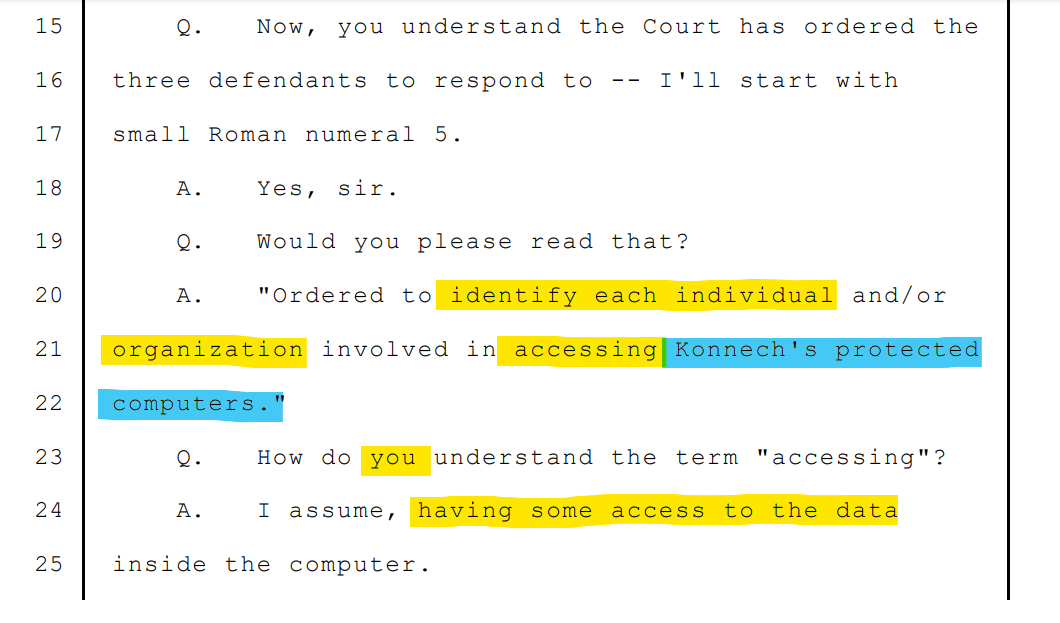















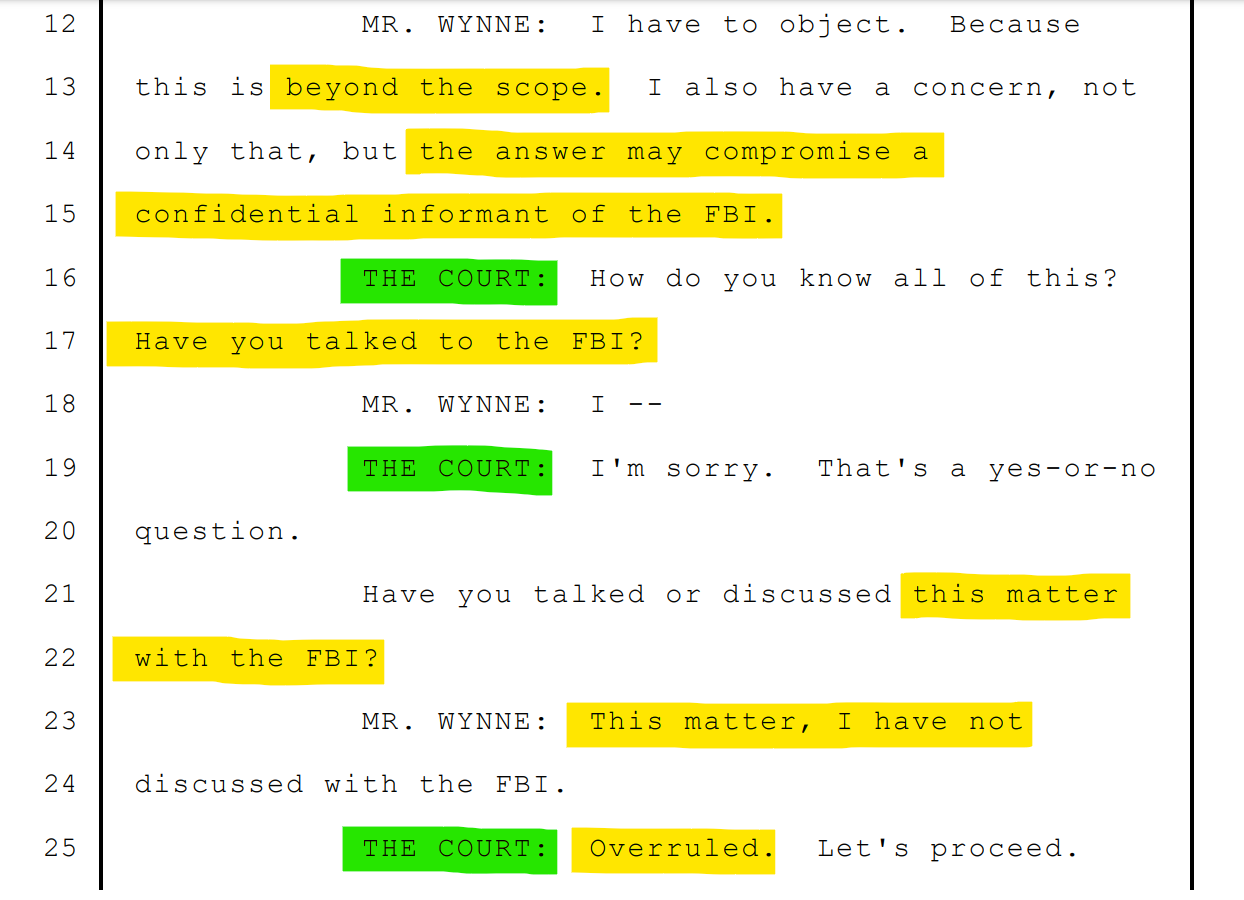














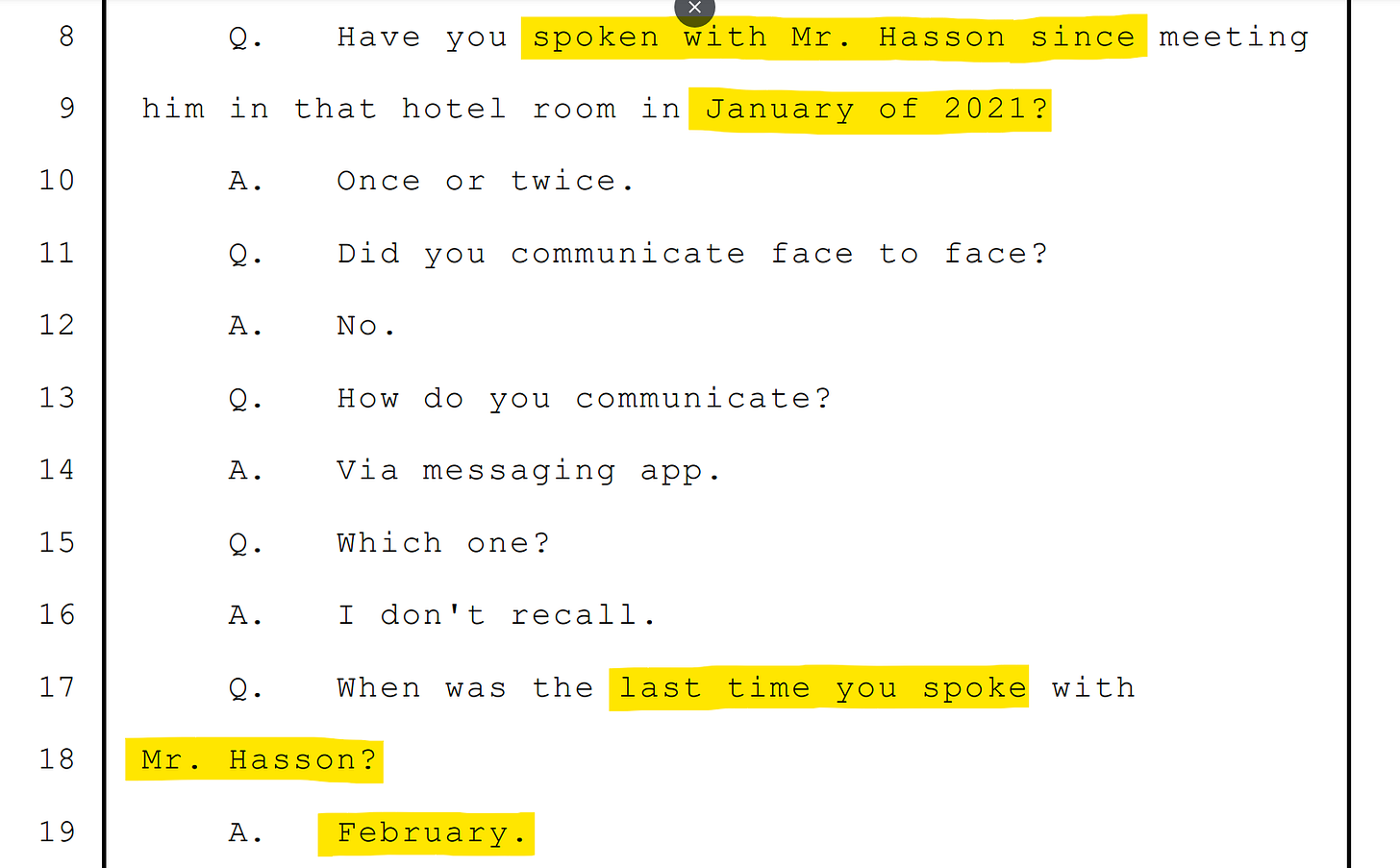















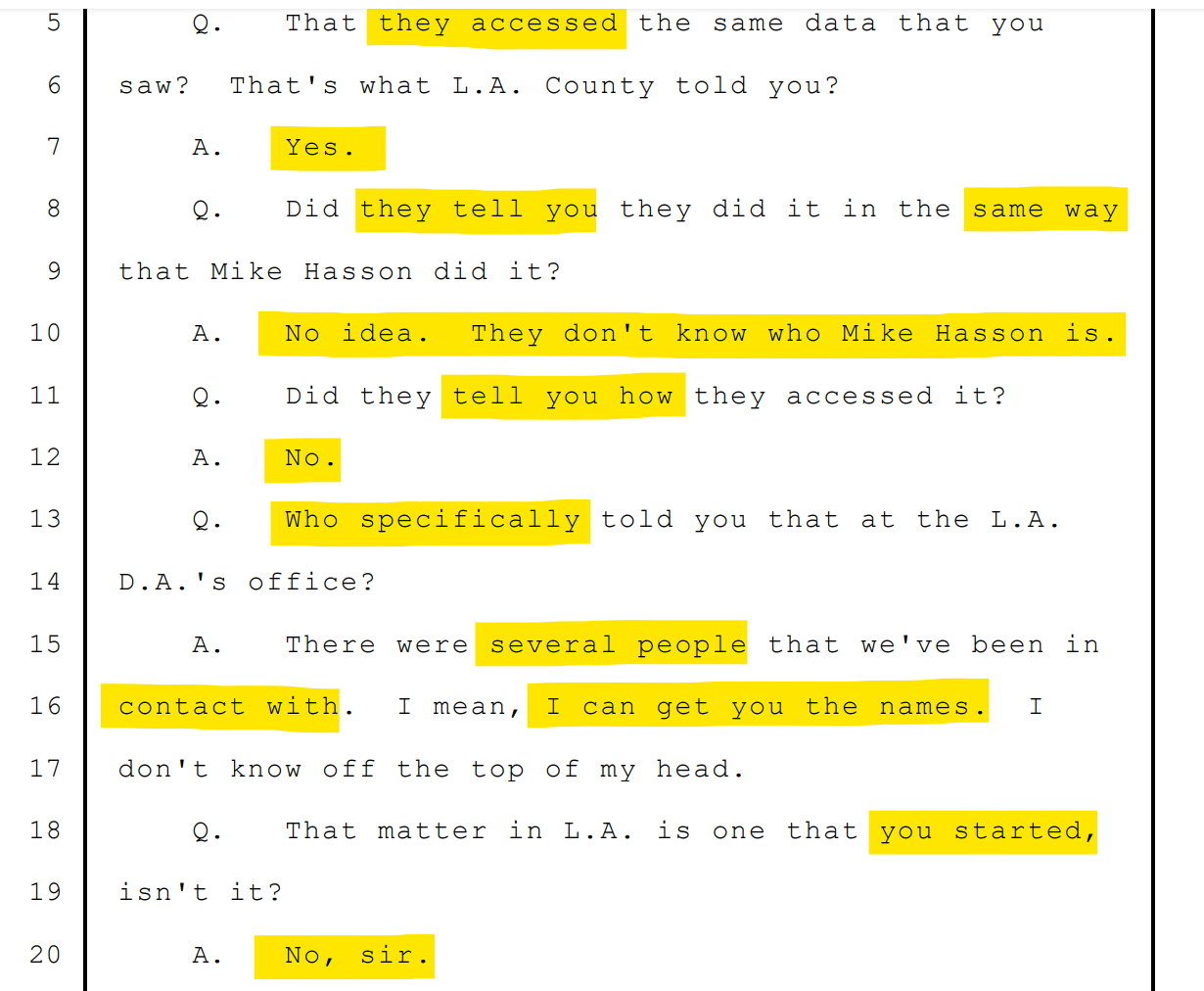





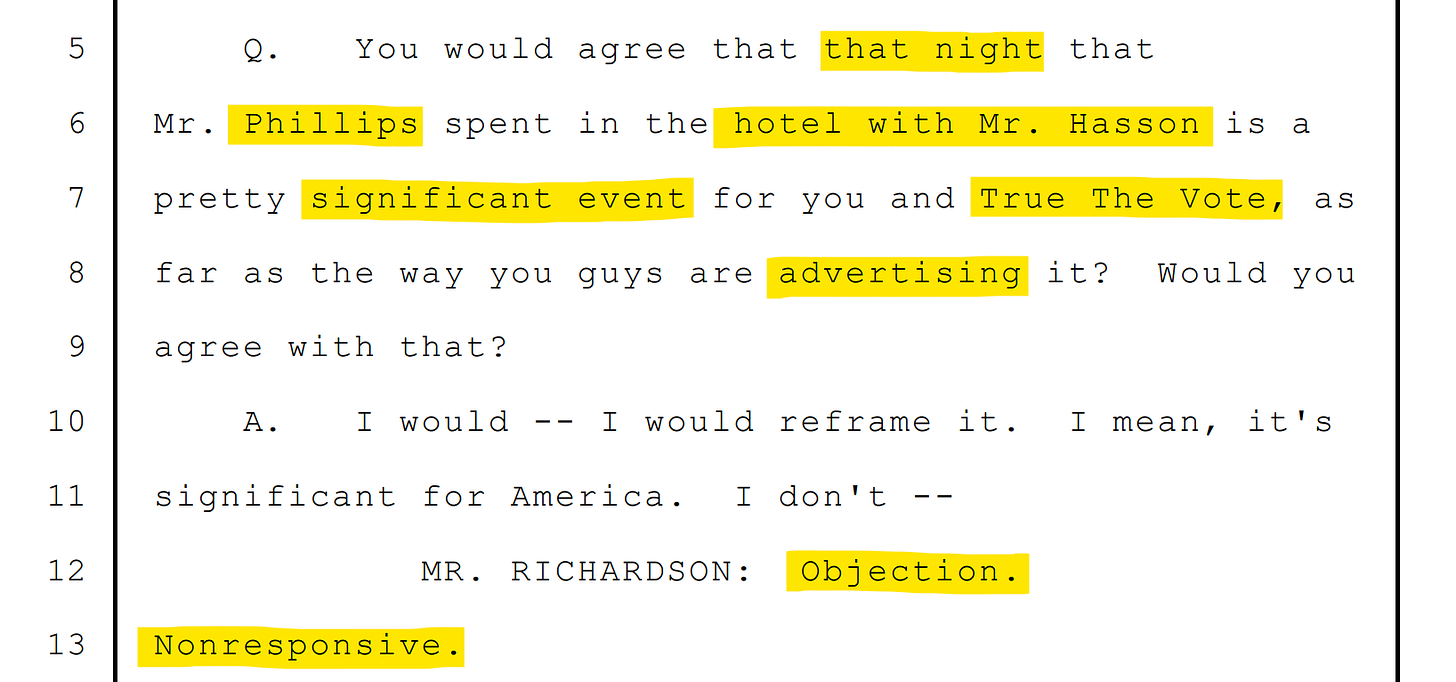


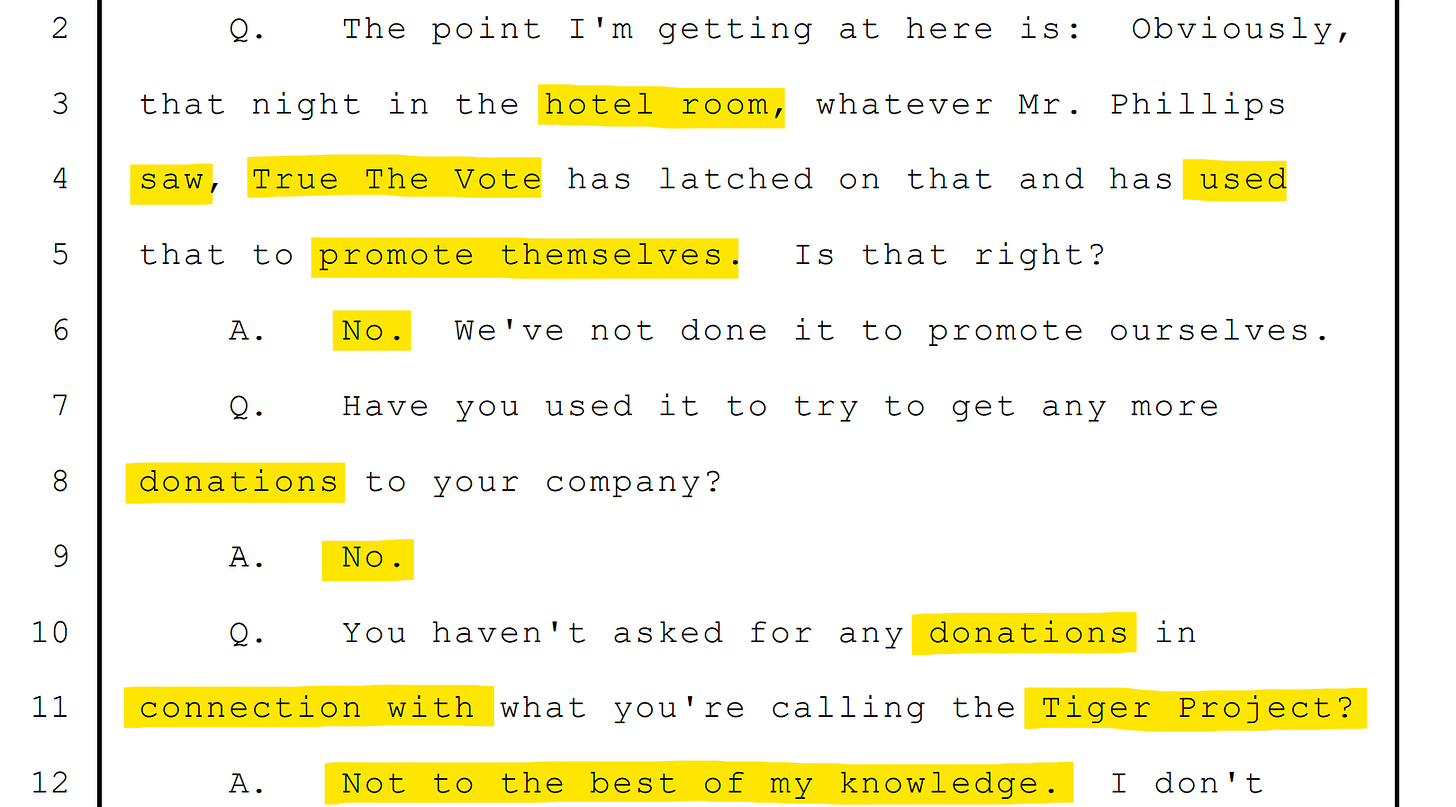



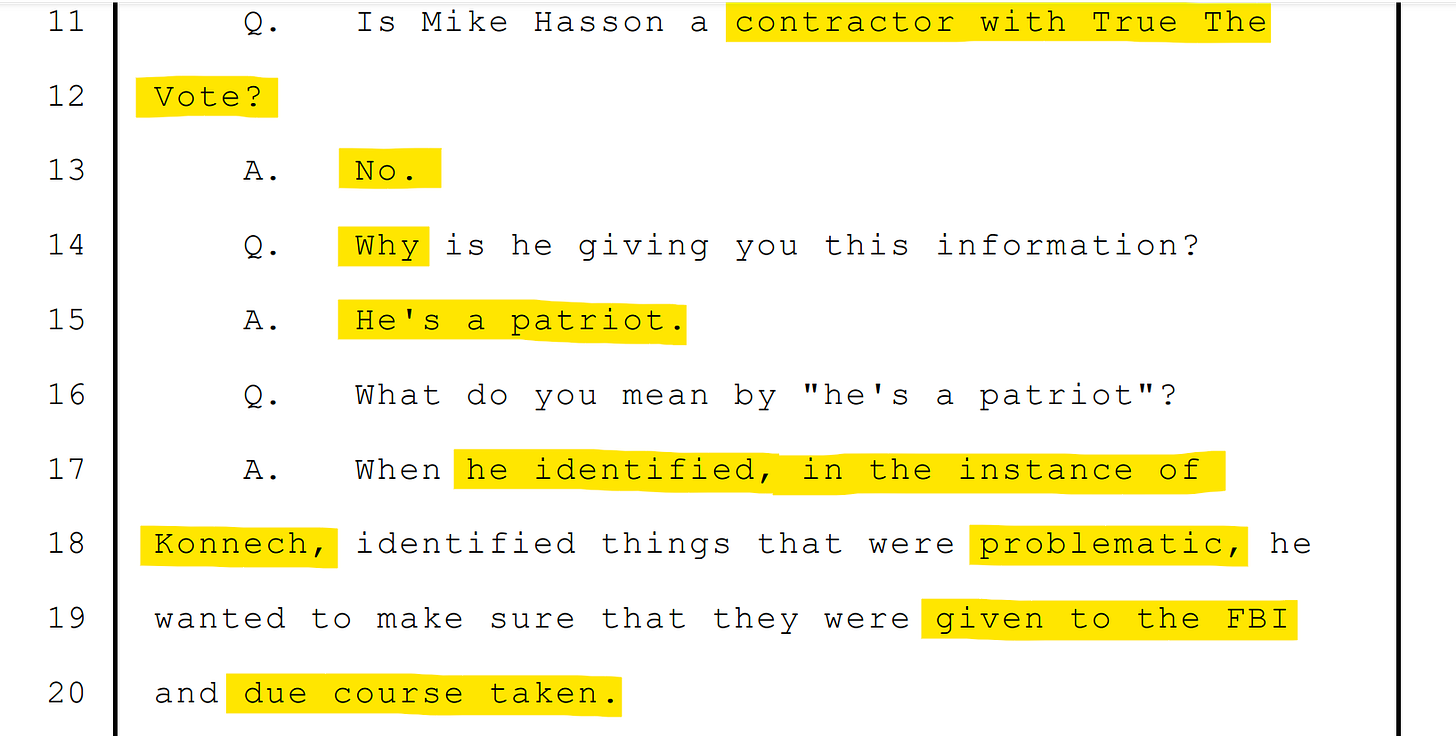





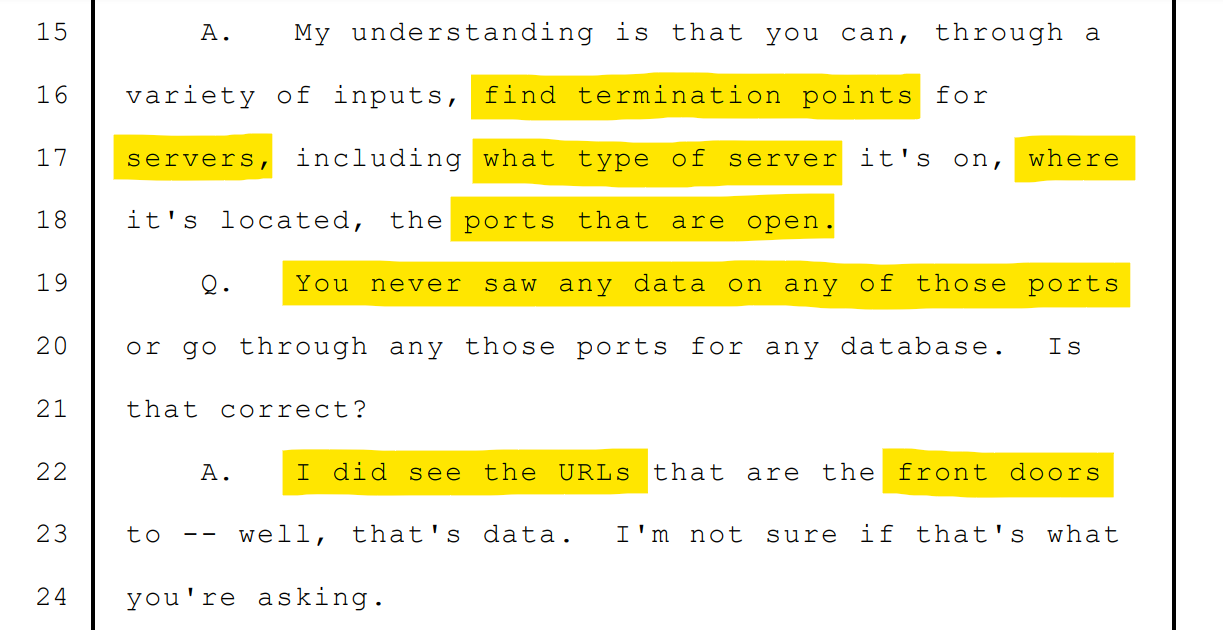
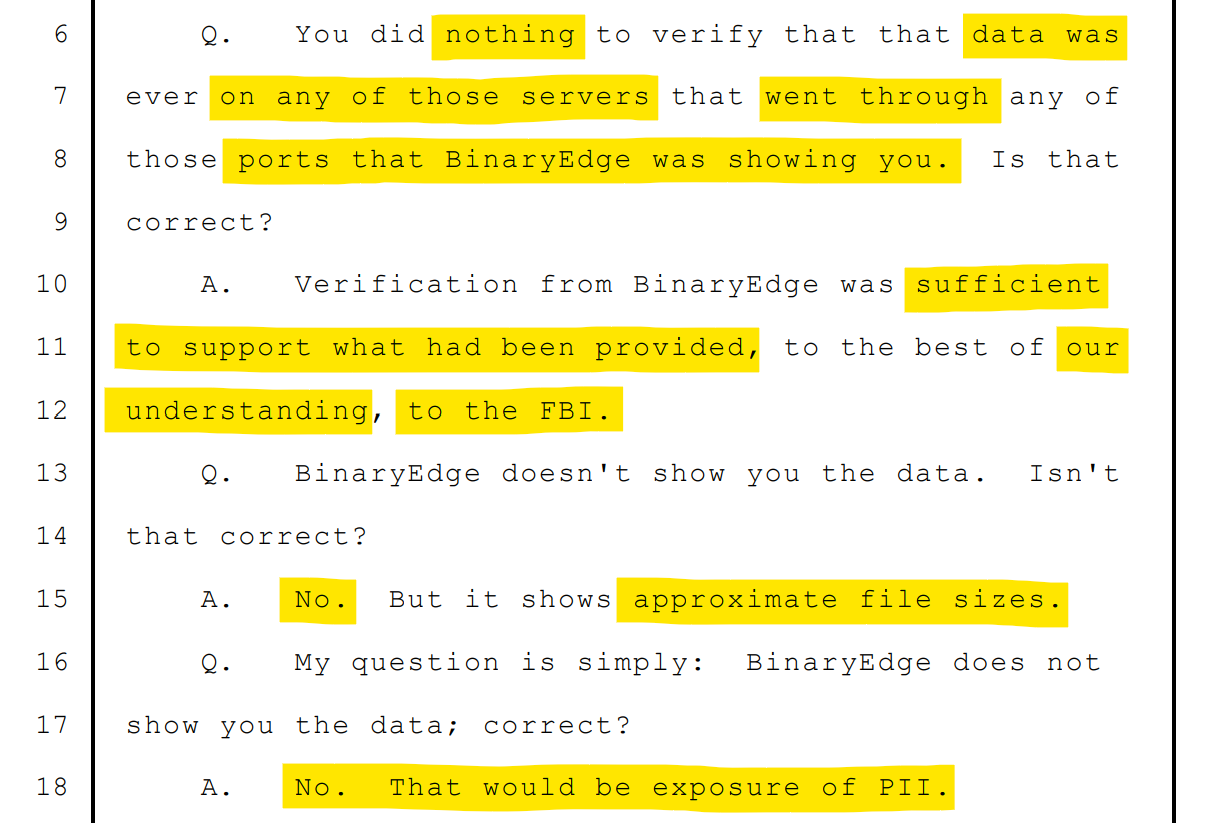





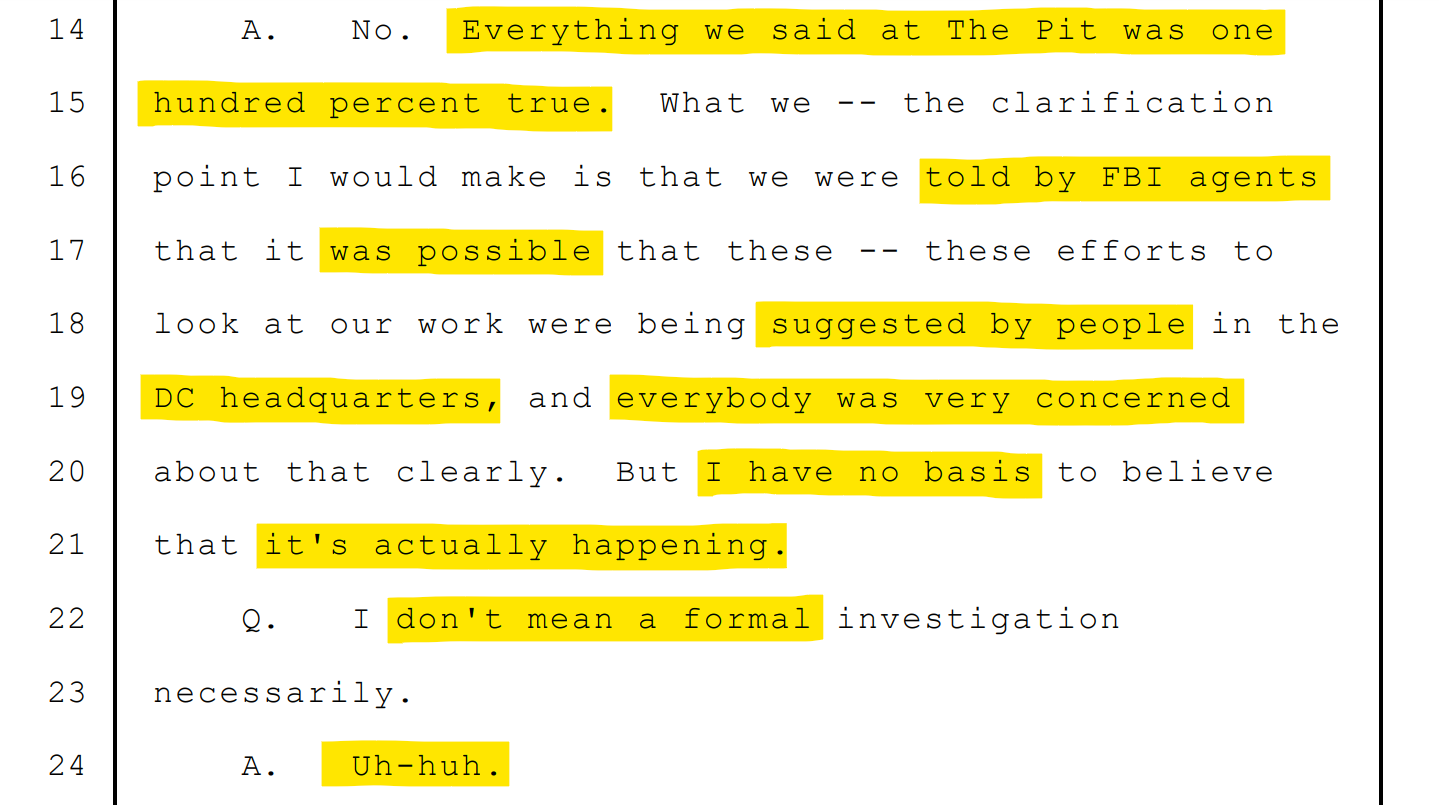



















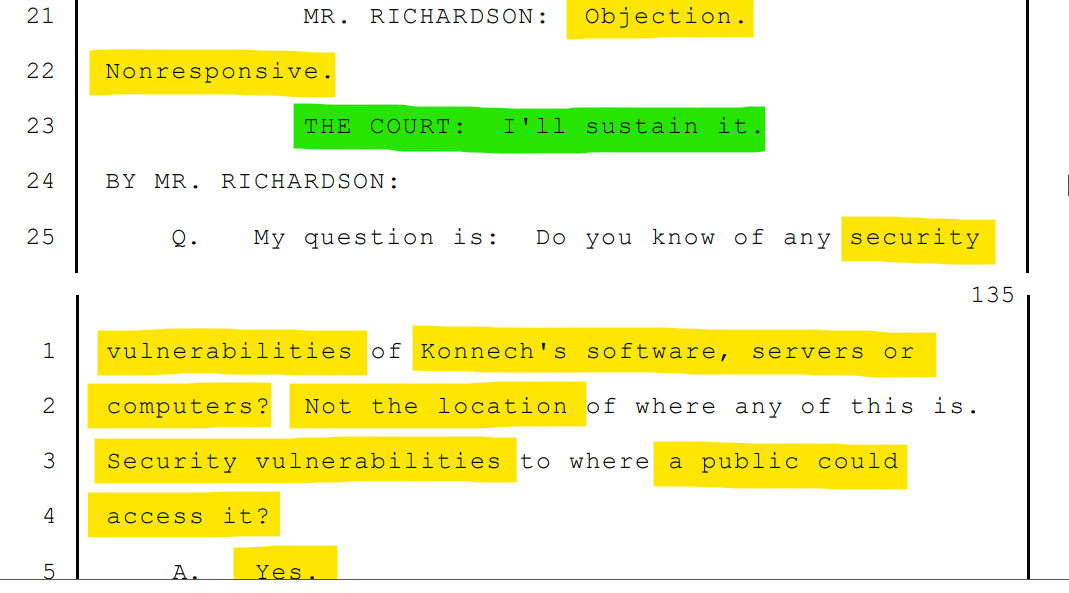



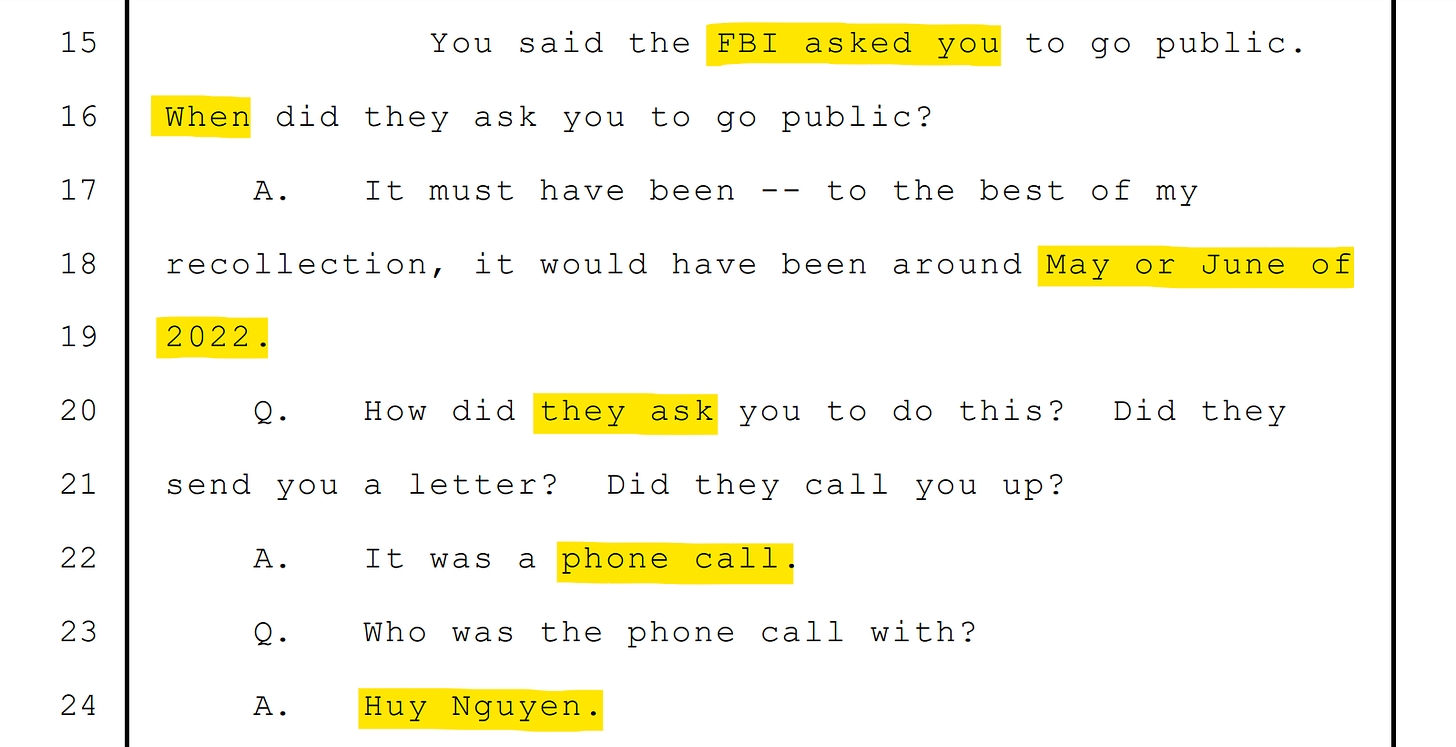



















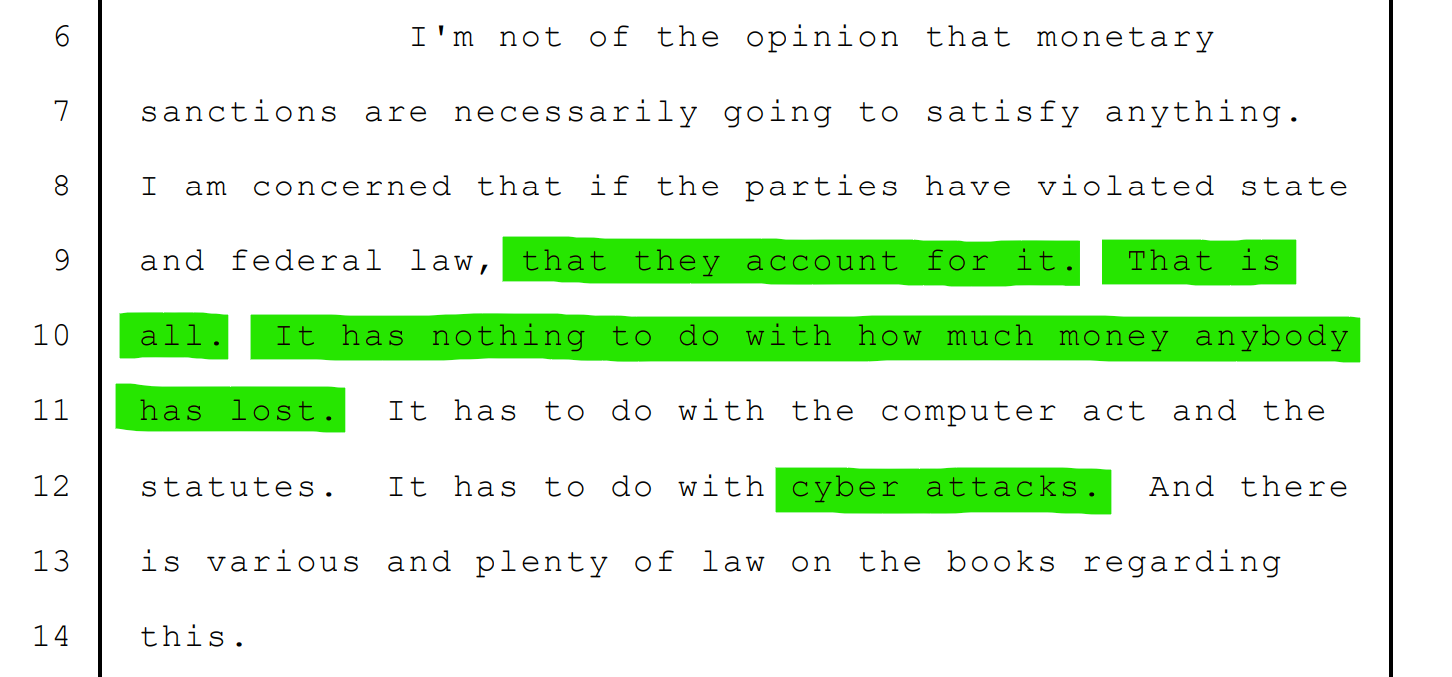






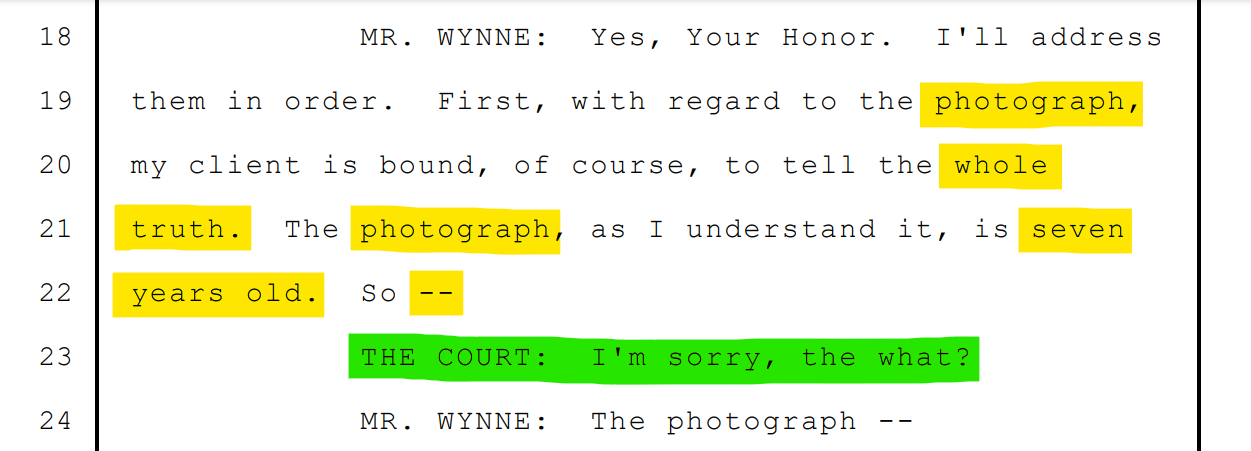









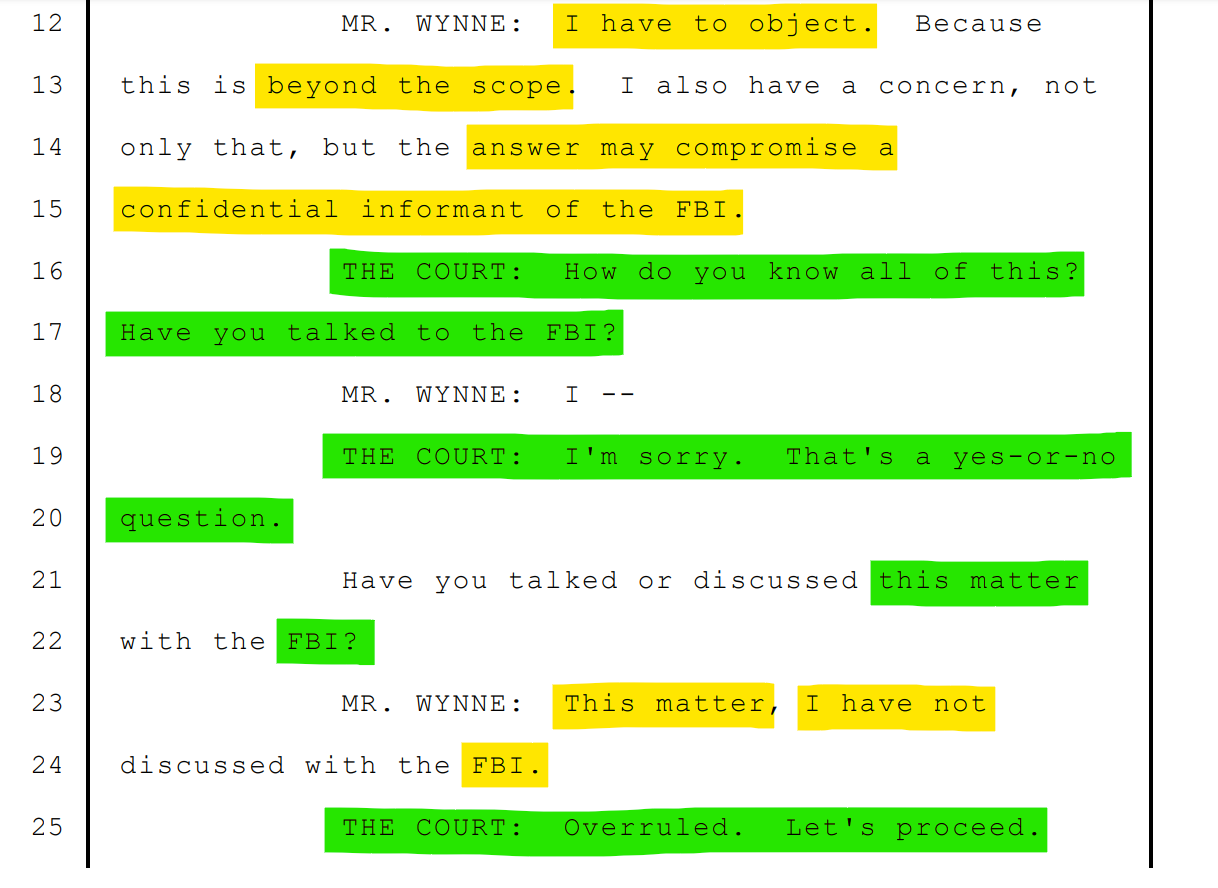





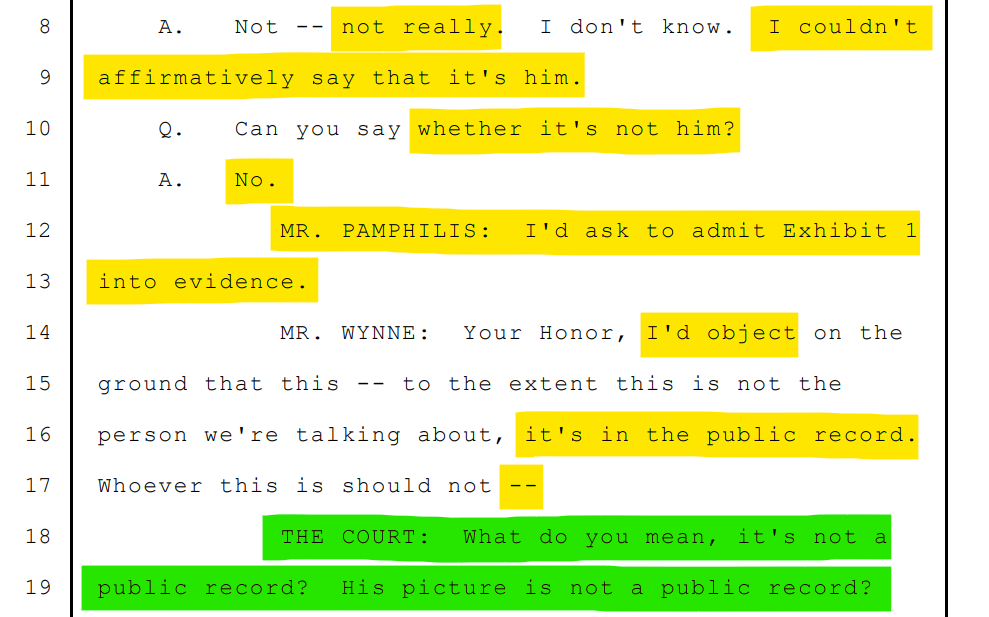



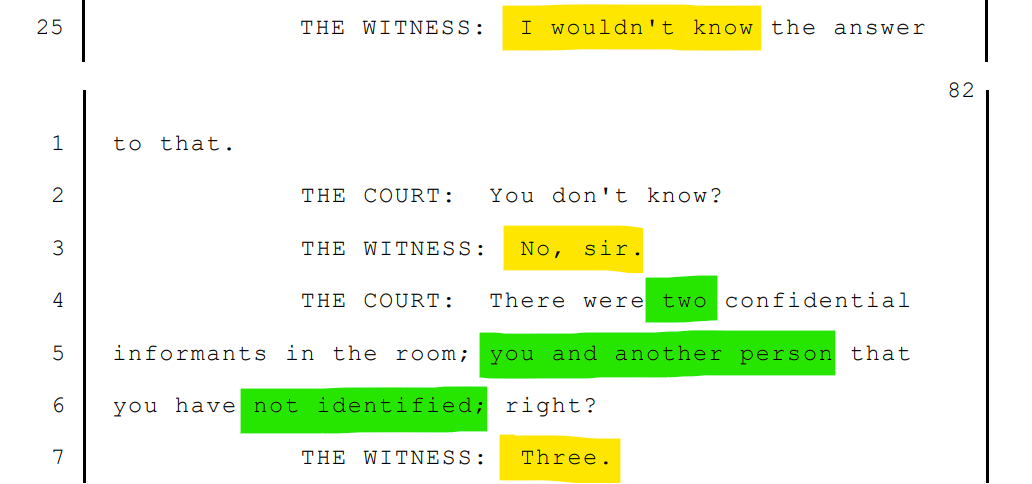












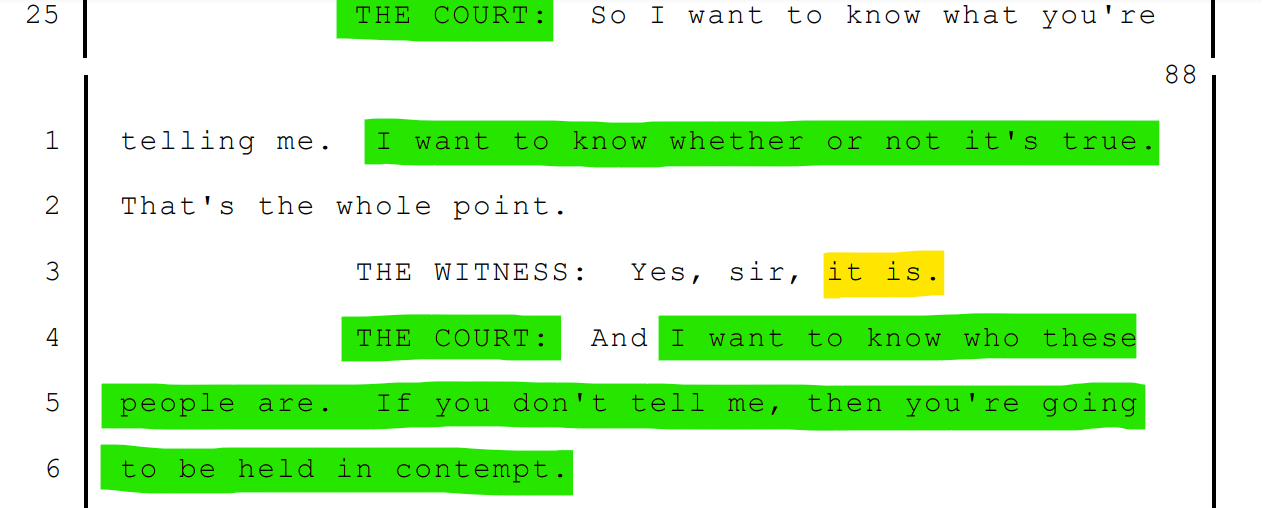












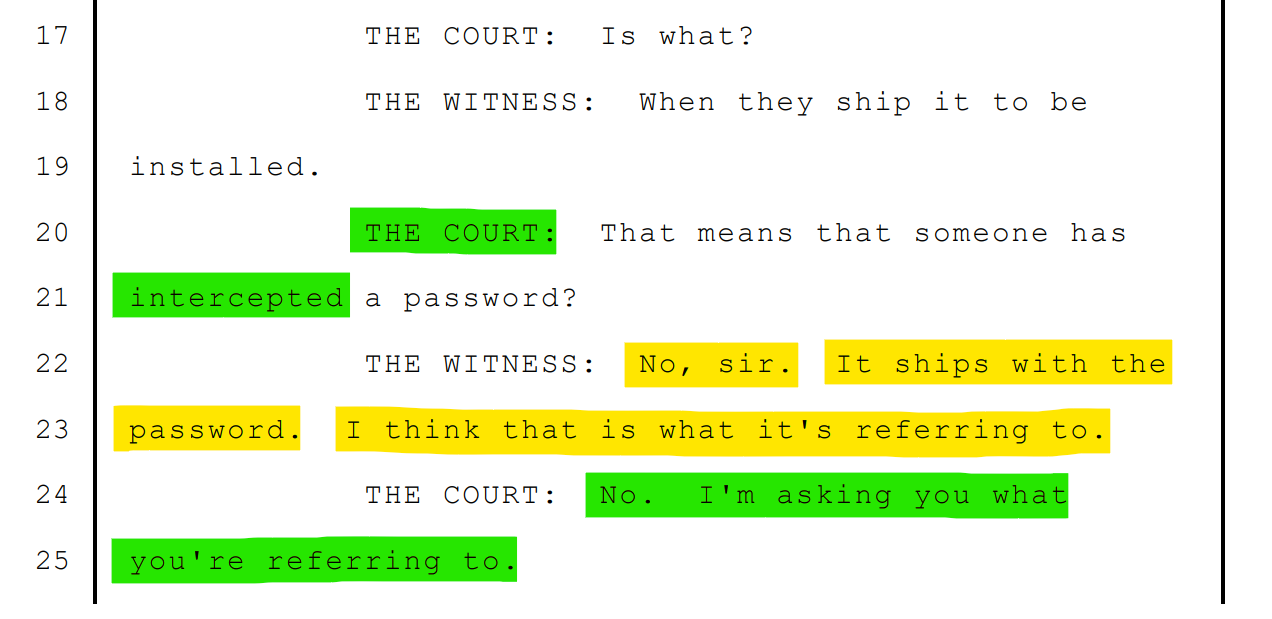



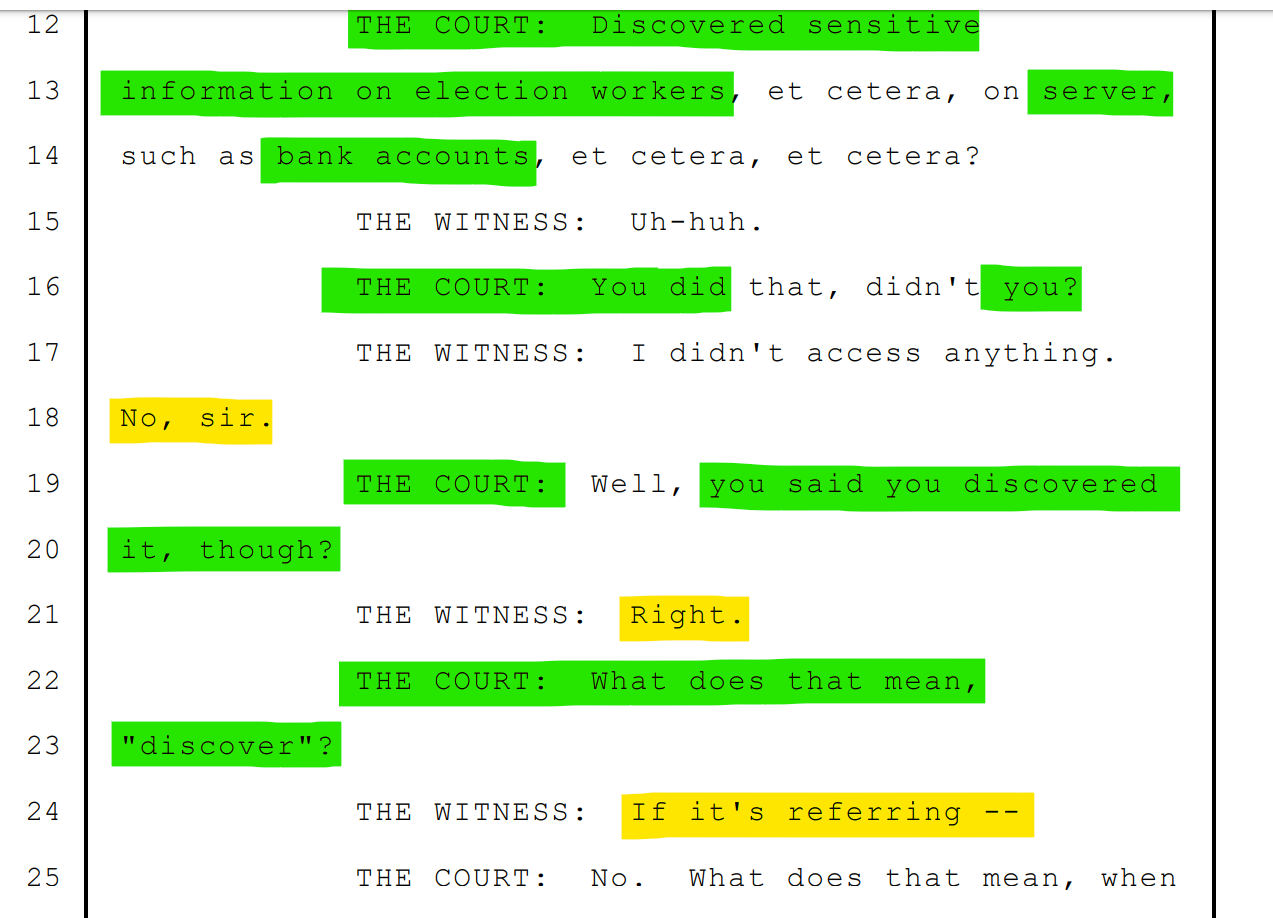


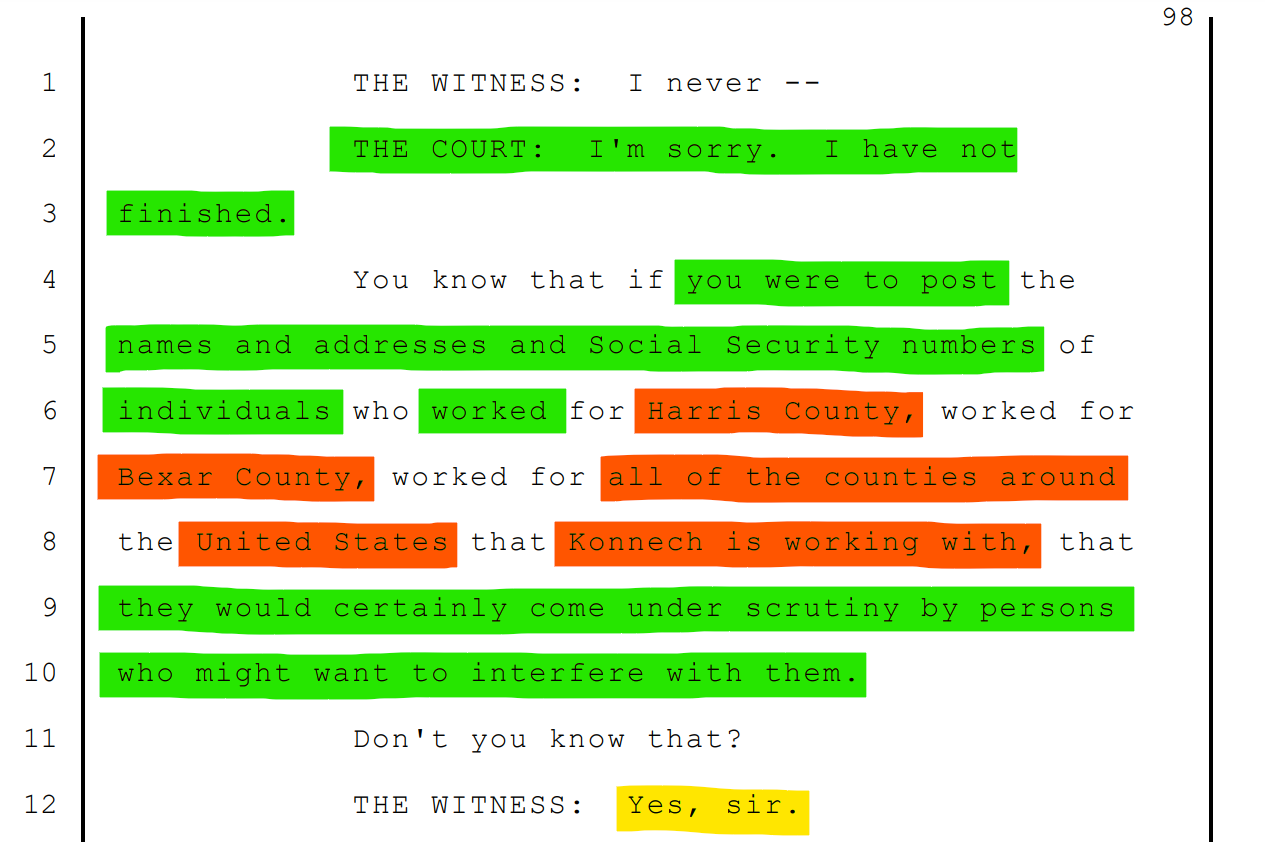



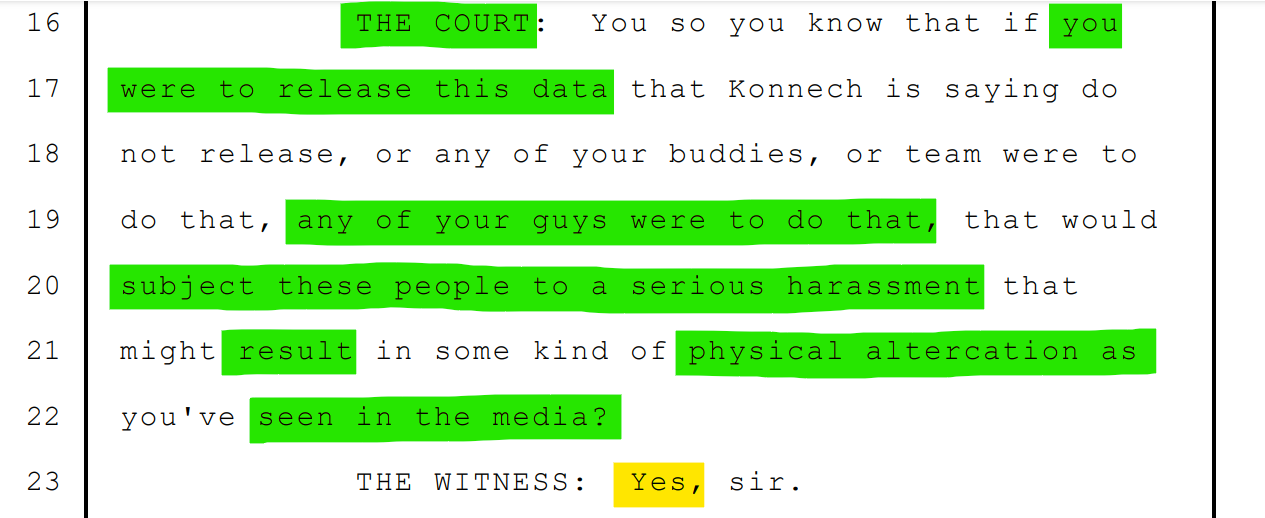












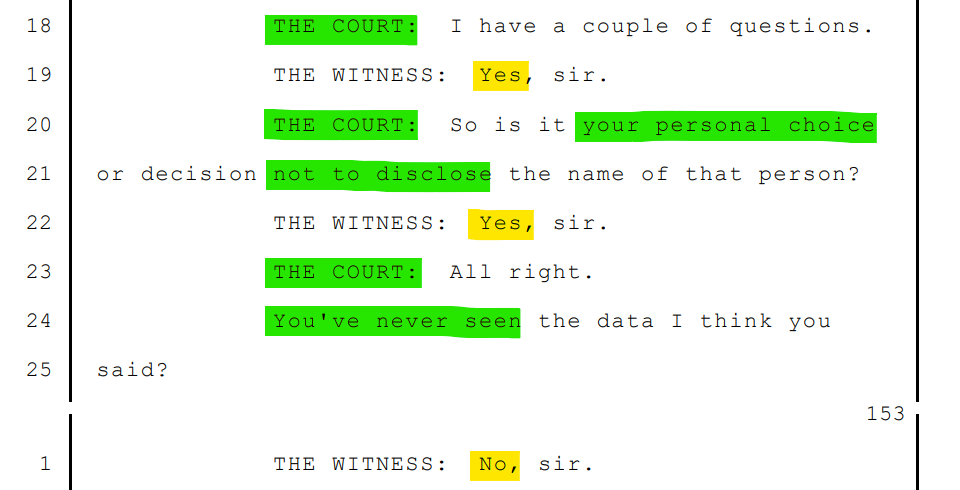




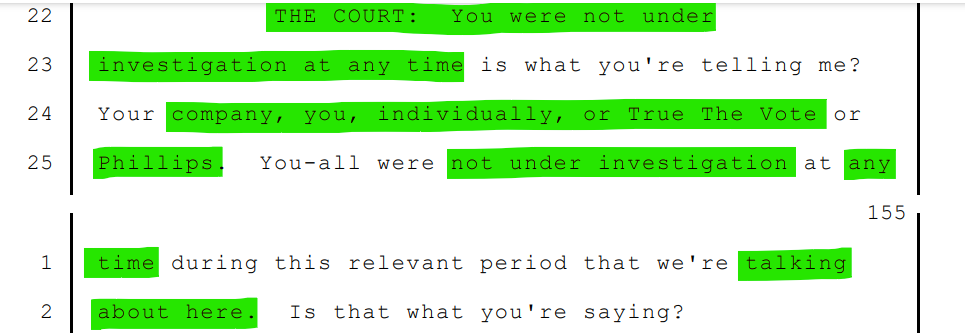



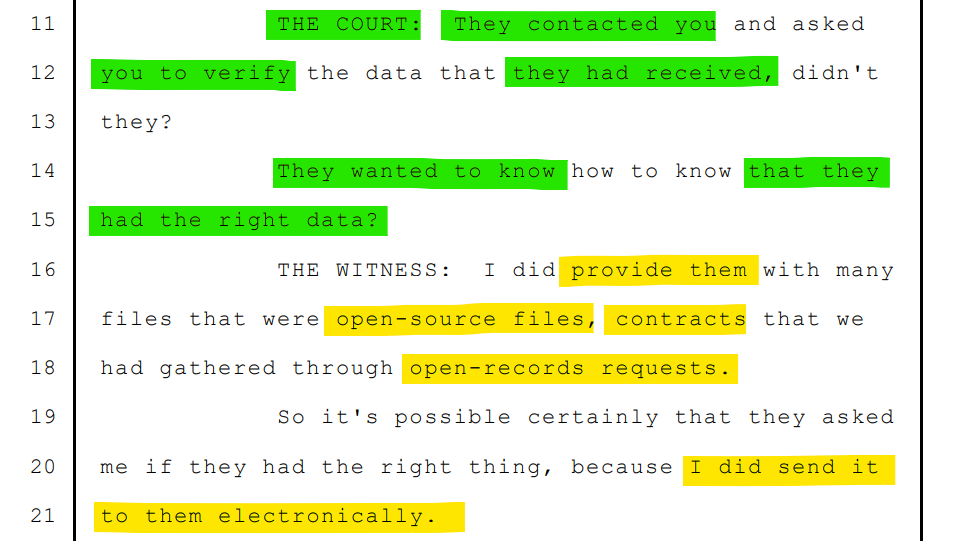




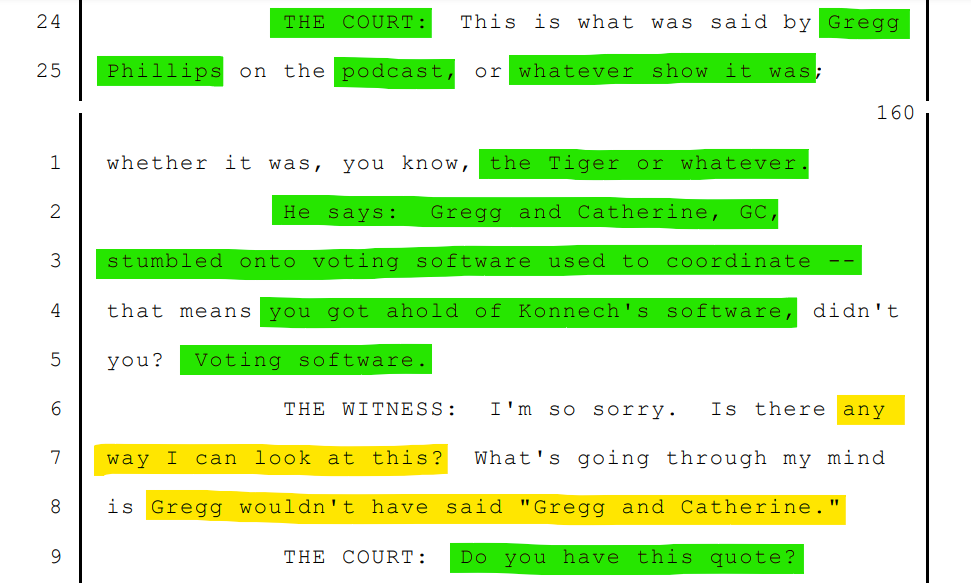

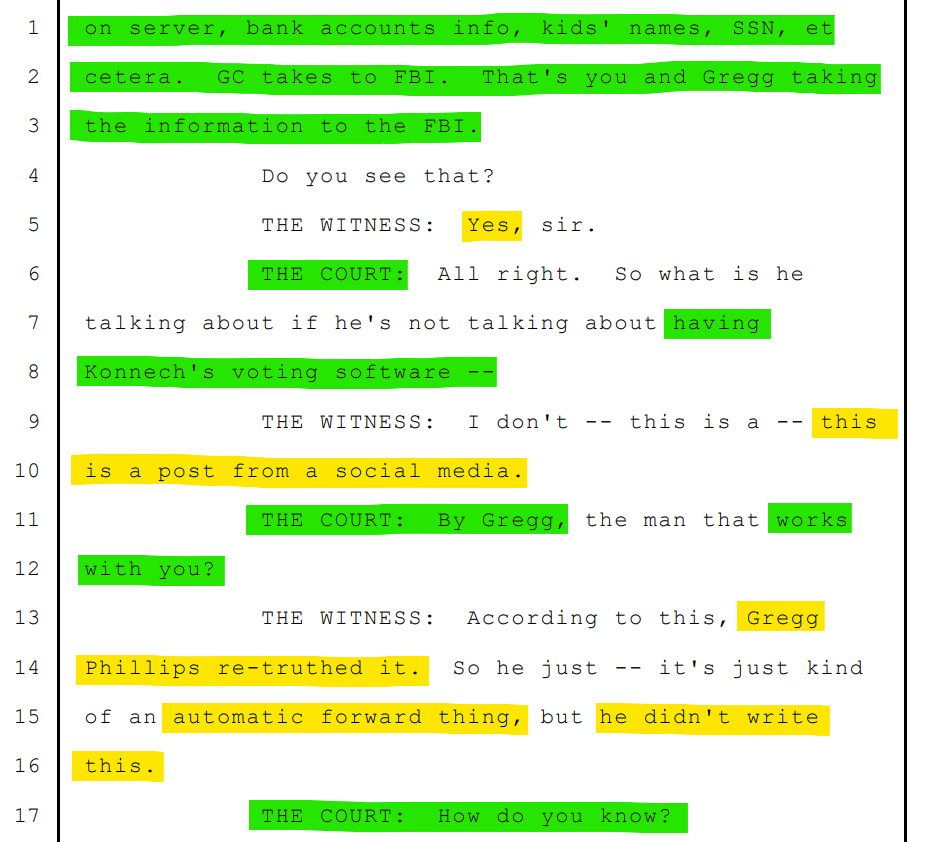









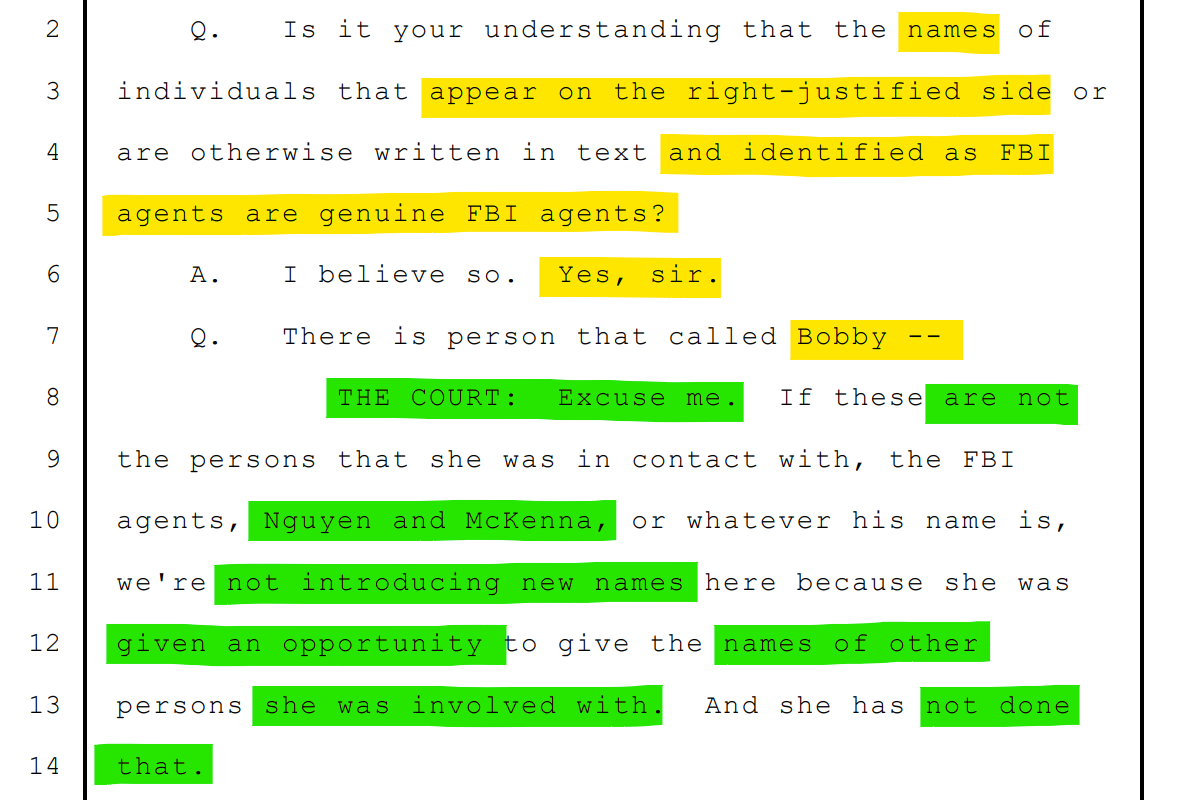




Thanks again. This is a really good analysis of the hearing. So disheartening that it went down like this.